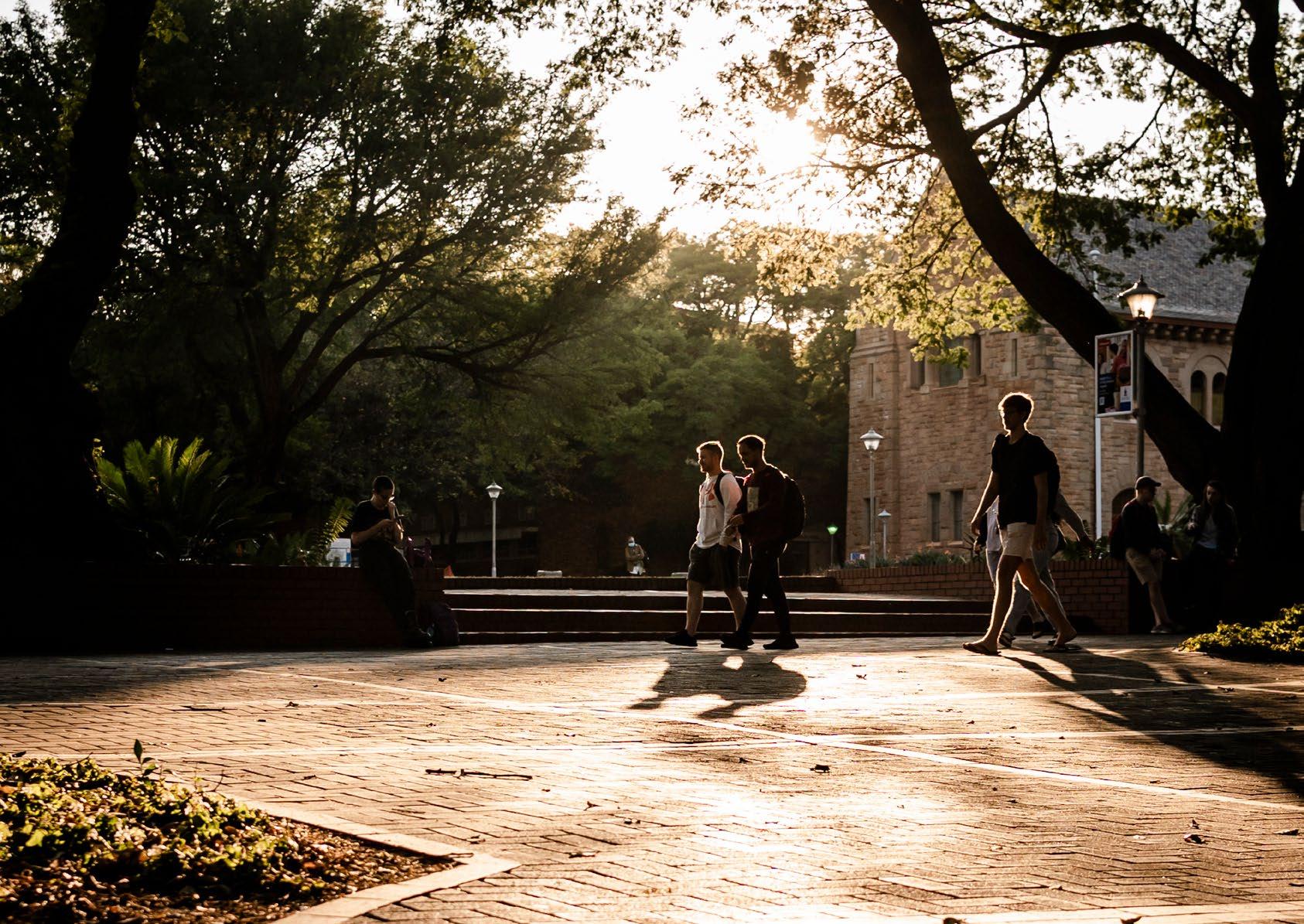SUSTAINABLE DEVELOPMENT REPORT 2024
UNIVERSITY OF PRETORIA
TOWARDS PEACE AND PROSPERITY FOR PEOPLE AND THE PLANET







The University of Pretoria (UP) is one of Africa’s leading universities and is among the largest contact institutions in South Africa. We are dedicated to producing socially impactful research that addresses the world’s most pressing challenges.
UP offers high-quality teaching, which is delivered in the classroom, online or in the community.
We have comprehensive support systems in place for our students to graduate on time and as wellrounded, responsible citizens who are fully prepared to thrive beyond university.


The University of Pretoria (UP) is recognised as a top-tier South African university. Through our nine faculties and business school, the Gordon Institute of Business Science (GIBS), we offer a wide variety of research and study opportunities in South Africa. As a leading traditional university, and compared to our counterparts, UP has the largest proportion of academics who hold a PhD qualification (73%), the most National Research Foundation (NRF)-rated researchers (593) and the highest student enrolment.
In 2024, the Times Higher Education (THE) Subject Rankings and QS World University Rankings recognised UP as the top-ranked university in South Africa for accounting and finance, economics and econometrics, electrical and electronic engineering, law, mathematics, mechanical engineering, and veterinary science. The UK’s Financial Times also ranked GIBS as one of the world’s leading business schools (#32). In addition, UP is the only South African university ranked in the 2023 World University Rankings for Innovation.
We leverage our reputation as a research-intensive university to build bridges into Africa and across continents in search of solutions to complex local and global challenges. Our research institutes and centres are responsive to emerging challenges and are at the frontier of new knowledge.


faculties
Gordon Institute of Business Science ranking by The Financial Times
Largest number of students enrolled in a traditional South African university
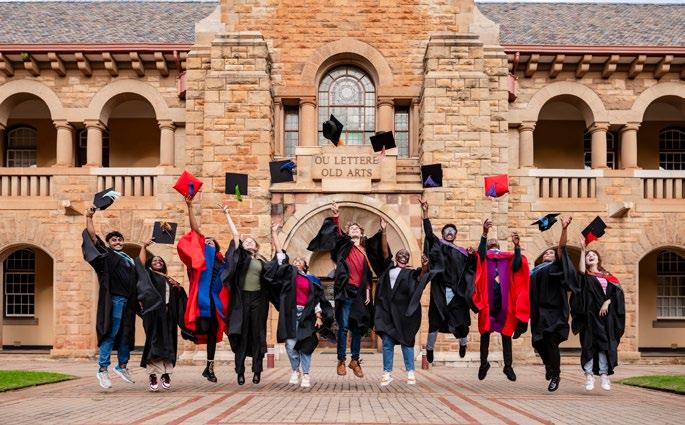

THE Impact Rankings
Our enabling learning environment is created through a hybrid teaching and learning model that prepares students for a rapidly changing world of work. Junior Tukkies Online, the University’s e-learning platform, adopts an ecosystem approach by assisting high school learners with free learning content. The Pre-university Academy enables access to those who may not have had such opportunities. Standard and extended curriculum programmes are comprehensively supported through a comprehensive and ambitious student success programme, helping students to graduate in the minimum amount of time, and the FlyHigher@UP programme improves postgraduate success rates. Our social learning spaces and interactive spaces mimic real-work and social environments, with learning being supported through innovation and technology.
UP is not only building a next-generation university – it is also ensuring that the next-generation workforce leaves well equipped to become active contributors to the economy and society at large. Ready for Work online courses help students prepare for the workplace, and an entrepreneurship programme teaches students to become job creators rather than job seekers. These initiatives are supported by a mentorship programme that helps final-year students hone their skills for the workplace, as well as the Centre for the Future of Work, which explores new ways of working to create future-fit graduates.
Becoming responsible citizens who demonstrate agency in making a difference to their local communities and to society at large is a hallmark of UP graduates. Through curricular community engagement, students apply their knowledge and strengthen their critical thinking skills by participating in collaborative projects within local communities. These projects advance tangible impact for mutual benefit. In 2024, 24 357 students were involved in curricular community engagement initiatives across 233 modules.
• ACCOUNTING AND FINANCE
• ECONOMICS AND ECONOMETRICS
• ELECTRICAL AND ELECTRONIC ENGINEERING
• LAW
• MATHEMATICS
• MECHANICAL ENGINEERING
• VETERINARY SCIENCE
73% 24 357 233
Only SA university in the 2023 World University Rankings for Innovation
academic staff with a doctorate students involved in circular community engagement modules

The University has a distinct focus on sustainable development, leveraging its core functions for enduring societal impact. UP’s contributions in the sustainable development space are well recognised: it was the first African university to join the University Social Responsive Network, is ranked 62 globally in THE’s Impact Rankings and is host to the Sustainable Development Solutions Network South Africa.
Sustainable Development Report University of Pretoria
The University of Pretoria’s 2024 Sustainable Development Report is the fifth report of its kind since its first publication in 2020. As with previous reports, it reflects on sustainability activities within the University and our commitment to achieving a better world. The report covers our stewardship role as an institution and our broader contributions to sustainable development through our core functions of teaching and learning, research and engagement.
We report on the work being done to nurture a people-centred institutional culture as well as our efforts to advance both the academic and sporting success of student athletes through TuksSport. The report also features new developments and progress in our environmental stewardship.
Through our core functions, UP aims to achieve societal impact beyond institutional boundaries. Impact is derived from the capable graduates that we produce to strengthen society, and the new knowledge we create to influence policy formulation and the development of new products and innovative practices.
The report connects our strategy and practices, and a series of brief case studies have been selected to illustrate how our strategy is translated into action.
In this report, our stewardship actions and performance within our immediate footprint are characterised as ‘operational sustainability’. Broader contributions to society are referred to as ‘driving sustainable development through our core functions’. Together with our strategic approach to sustainability, these form the primary subject boundaries of the report.
We report on activities for the period 1 January 2024 to 31 December 2024. Activities considered include those undertaken solely by the University and those within partnerships or collaborations where UP plays an active and material role.
In keeping with previous reports, we reflect on the alignment and relationship of our activities to the Sustainable Development Goals (SDGs) as adopted by the United Nations.
We drew upon a wide range of sources to provide a balanced representation of sustainability-related activities across the University. Ideas and accounts put forward by members of the UP Executive and faculty and entity leadership served as important references. Other sources included articles from the University’s website. Process owners reviewed their respective sections before finalising the information. Institutional-level data was sourced from UP’s Department of Institutional Planning to ensure its accuracy and consistency with the University’s Annual Report.
The 2024 Sustainable Development Report follows a similar basic architecture to the 2023 publication, as shown below. It comprises four sequential sections: introductory chapters that outline the University’s profile and the current report; strategic initiatives that cut across the institution; translating the strategy into action; and a concluding section.
UNIVERSITY OF PRETORIA
University profile About this report Performance highlights Leadership messages
The strategy context Connecting curricula and sustainable development to advance the SDGs Engaging with stakeholders for inclusion and mutual benefit
OPERATIONAL SUSTAINABILITY
The operational context Towards a people-centred institutional culture Organised student life TuksSport – advancing academic and sporting excellence Towards a resilient campus
DRIVING SUSTAINABLE DEVELOPMENT THROUGH OUR CORE FUNCTIONS
The societal context Sustainable economies Life, our planet and technology
Inclusive societies and capable institutions
Consolidated alignment with the SDGs Acknowledgments References Contact us
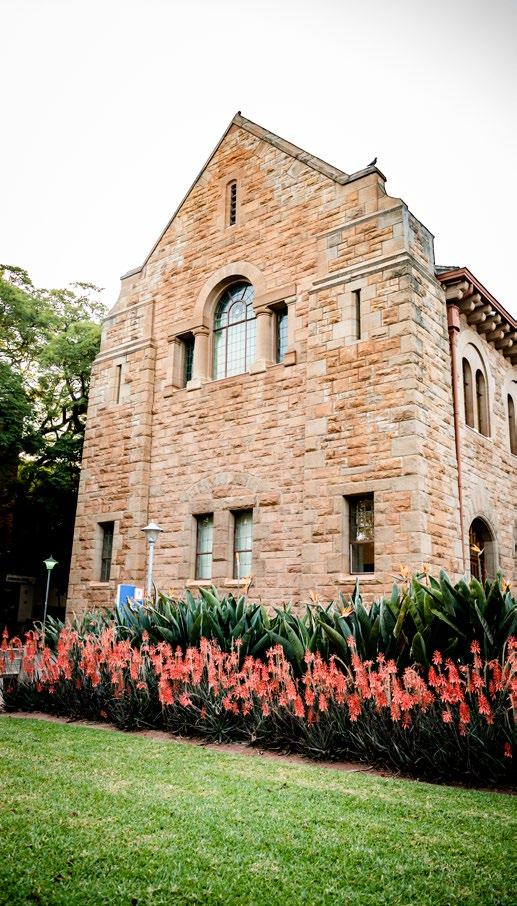
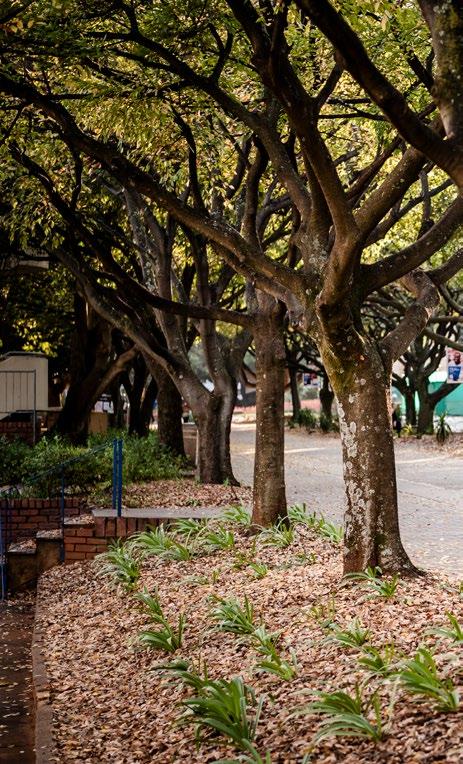

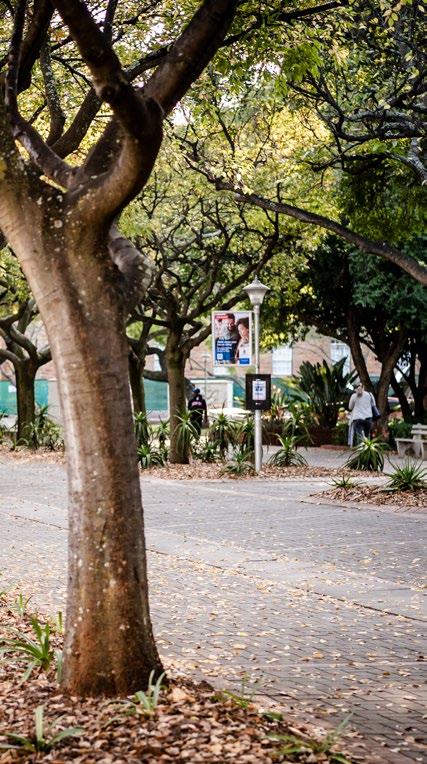

9 faculties
• Economic and Management Sciences
• Education
• Engineering, Built Environment and Information Technology
• Health Sciences
• Law
• Humanities
• Natural and Agricultural Sciences
• Theology and Religion
• Veterinary Science

1 business school –Gordon Institute of Business Science

66
3 NEW RESEARCH CENTRES
• Hans Hoheisen Research Centre
• Centre for Visual Impairment
• Centre for Environmental Justice in Africa

3

55
593 research institutes and centres research chairs NRF Centres of Excellence (CoEs) NRF-rated researchers
2 NEW RESEARCH CHAIRS
• SARChI Chair for Nano-Materials for Energy Storage and Water Purification Applications
• Industry-funded Chair in Municipal Finance
UP IS AT THE FRONTIER OF TRANSDISCIPLINARY WORK TO SOLVE SOME OF THE MOST COMPLEX CHALLENGES.







Forestry and Agricultural Biotechnology Institute
One of the largest contact universities in South Africa.
56 453 enrolled students

Future Africa Platform
Engineering 4.0
Innovation Africa@UP
Javett-UP Art Centre
Centre for the Future of Work UP Institute for Sustainable Malaria Control
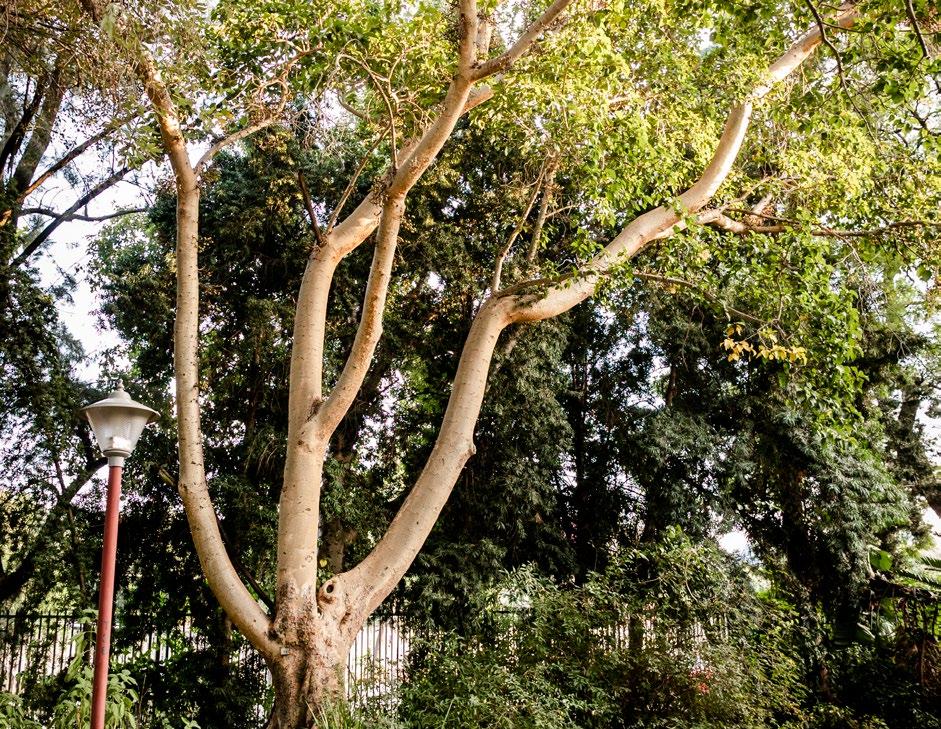
19 967
• First cohort of students graduate from the Pre-university Academy
• Comprehensive approach to academic success coaching


73.2%
Highest percentage of academic staff with a PhD
593
Most NRF-rated researchers
• UP student Rorisang Mahomo credited with the discovery of an asteroid by the International Astronomical Union’s Minor Planet Centre database.
• Collaboration between UP and the Council for Scientific and Industrial Research produces a remote sensing tool to enable maize farmers to pinpoint and eradicate weeds with more precision.
• Researchers from the Faculty of Veterinary Science discover optimum way to monitor blood oxygen levels in immobilised rhino.
• UP secured the number two spot in Africa and South Africa in the 2024 Times Higher Education SubSaharan Africa Rankings.
• UP hosted the first Spanish-South African Universities Symposium, under the theme ‘Local Health at the Crossroads’.
• UP named a co-lead of the newly formed African-German Centre for Sustainable and Resilient Food Systems and Applied Agricultural and Food Data Science.
• UP climbs to the top 3 in Africa and is ranked 431st globally in the 2024 Webometrics rankings.
• The E-Education Group UP received an Anthology Catalyst Award for Training & Professional Development, recognising its exceptional contributions to education.
• Expanded focus on carbon footprint reporting to include Scope 3 emissions
• Implementing Smart Campus initiative with digital twinning
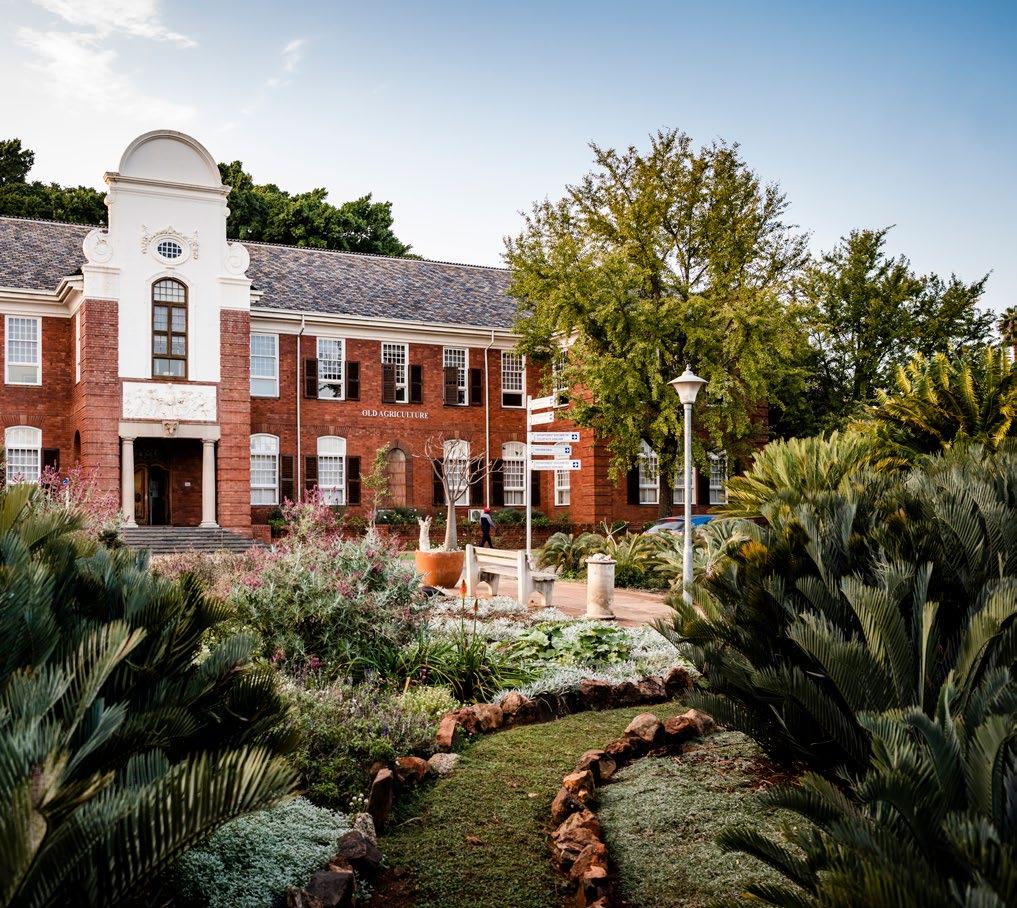
• Ranked 63rd globally in the 2024 Times Higher Education Impact Rankings
• Ranked 7th globally for SDG 17: Partnerships for the Goals
• Ranked 36th globally for SDG 1: No Poverty
• Ranked 41st globally for SDG 6: Peace, Justice and Strong Institutions
• Ranked 45th globally for SDG 8: Decent Work and Economic Growth
We have a distinct focus on sustainable development and leverage our core functions for enduring societal impact.

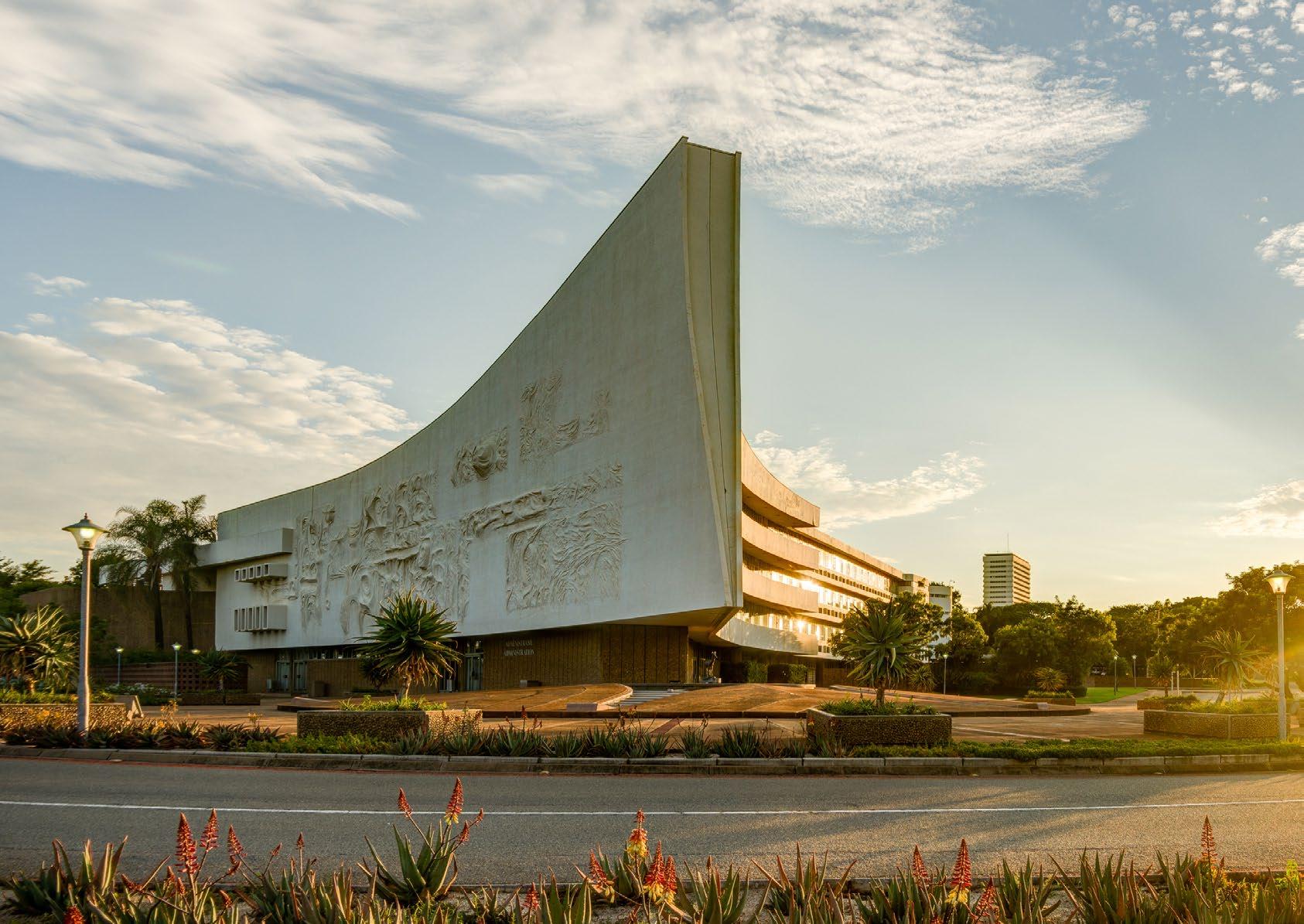
The world continues to face a plethora of ‘wicked problems’ at national, continental and global levels. These include the many faces of poverty, worsening inequality and hunger, high levels of unemployment, biodiversity loss, climate instability, global conflict and crises of democracy. In the broadest context, instability and uncertainty are hallmarks of our age, threatening humanity and planetary sustainability. Against this background, higher education institutions are under increasing pressure to demonstrate the positive socio-economic and environmental impacts of their work. Indeed, our impacts need to be transformative in nature, starting with people coming together to share knowledge and make sense of complexity, and working together to effect change at scale.
This transformation is twofold: transformation within our institutions and beyond institutional boundaries to change lives for the better and advance society positively.
At UP, as we evolve and seek to transform, we see transformative societal impact as a sustainable development conversation. To this end, sustainable development is, and will continue to be, central to our institutional strategy. We believe that true transformative impact comes from strengthened integration within the academic project, applying transdisciplinary approaches, and fostering collaboration, partnering and co-creation.
An integrated approach across our core functions underpins internal transformation. All facets of our academic project – teaching and learning, research and engagement – are crucial to making the difference we aspire to. While each function can make a discrete contribution, working together as a coherent, integrated collective elevates and amplifies transformative impact. Our Integrated Academic Framework focuses on interdependence between the core functions, and seeks to create an ecosystem where the new knowledge we create is embedded into the curriculum to keep us at the frontier of scholarship, teaching and learning. Community engagement is woven through teaching, learning and research.
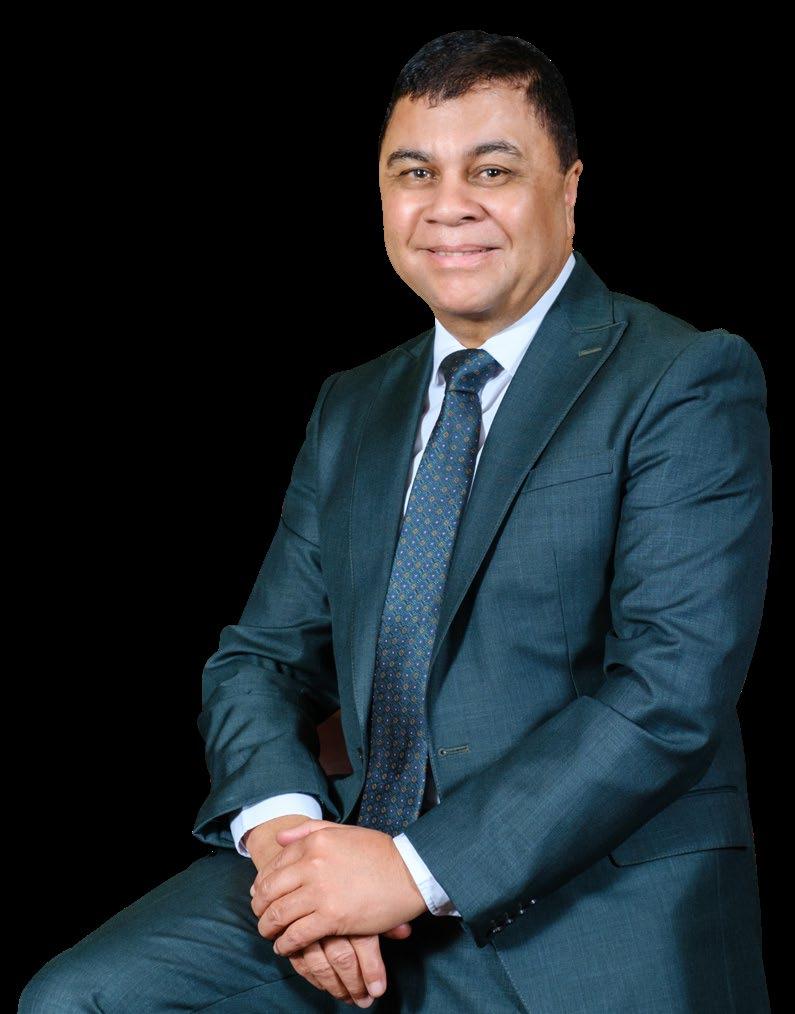
We continue to strengthen transdisciplinarity across research and education to address complex and grand challenges, while preparing graduates for the future. UP recognises that employability and career transitions vary across different parts of the world, particularly when comparing Africa to pathways on other continents. As such, we prepare our graduates to be global citizens whose qualifications are valued across the continent and the rest of the world, and whose skills enable them to pivot and reinvent themselves in a rapidly changing future world of work.
Our collaborations extend beyond the academy to include industry and the private sector, the

government, NGOs, communities, individuals and civil society at large. Within these collaborations, transdisciplinary approaches help us understand and navigate complexity, and to be closely attuned to industry, markets and societal dynamics.
Within the University, there are many examples of our transformative impact. In this report, we reflect on some of those, which are a broad representation across all University faculties and core functions. The three levers of integration, transdisciplinarity and collaboration are common threads within the examples provided.
The case studies presented demonstrate our commitment, resolve and contributions towards a sustainable future. They reflect who we are and how our institutional intent is expressed through the commitment and talents of our university community. As we go forward, we will continue to embed sustainable development into the fabric of the University and strengthen our sustainability maturity level.

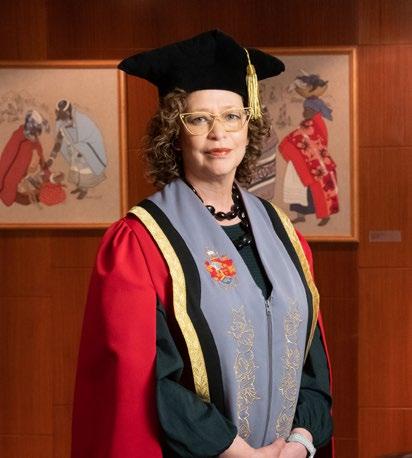
We are pleased to present our 2024 Sustainable Development Report, following on from similar reports produced since the 2019 reporting period. As a report to society and an internal scorecard, we reflect on our landscape through a sustainable development lens, our strategic intent as an institution of society, how we translate our intent into action and the difference we make in this way. The University continues to take a holistic approach to sustainable development, looking both inwardly at our institutional and stewardship functions, and outwardly at the difference we make to society through our academic project.
In previous reports, we described how sustainable development is integrated into the institutional strategy and how sustainable development is given expression through our Integrated Academic Framework. This year, we describe how this is being taken further as we map sustainable development themes and the Sustainable Development Goals (SDGs) to curricula. This forms a basis for us to become more intentional in advancing sustainable development and to move towards a more integrated approach across disciplines for intentional inter- and transdisciplinary work.
Our institutional and stewardship functions are presented in the section on operational sustainability. We expand on the institutional culture initiative introduced in last year’s Sustainable Development Report, and reflect on progress and lessons during 2024. Our approach to the resilient graduate has previously been discussed; this year, we have focused on TuksSport, which enables sport and well-being across the student body and supports elite athletes who excel locally and internationally.
The University continues to perform its environmental stewardship role by managing its vast geographical footprint – and natural resources – responsibly. It has made significant strides in carbon footprint reporting, shifting to
using the financial control methodology and including measurement of Scope 3 carbon emissions. Efforts to optimise resource utilisation are underpinned by progressively expanding renewable energy capacity, and through the Smart Campus Initiative currently underway.
As with previous reports, advancing sustainable development through our core functions is clustered into three groups: sustainable economies; life, our planet and technology; and inclusive societies and capable institutions. In each category, we present case studies of work being done within the University to advance our strategic intent and contribute to positive societal impact. An important feature of these examples is that their selection is balanced across research, teaching and learning, and community engagement. This intentionally reflects the equal importance of each function in contributing to transformative societal impact. Through the case studies, we also demonstrate how integration of our core functions can advance transdisciplinarity, collaboration and partnerships. We recognise that the SDGs are important indicators of societal impact; as such, we demonstrate how the various examples are connected to relevant SDGs.
The report concludes with a section on our alignment with and contribution to the SDGs. In summary, this report reaffirms our commitment to sustainable development and our pursuit of a better world through quality education and impactful research. We remain resolute on this journey and seek to continually improve and make a difference through the work we do.
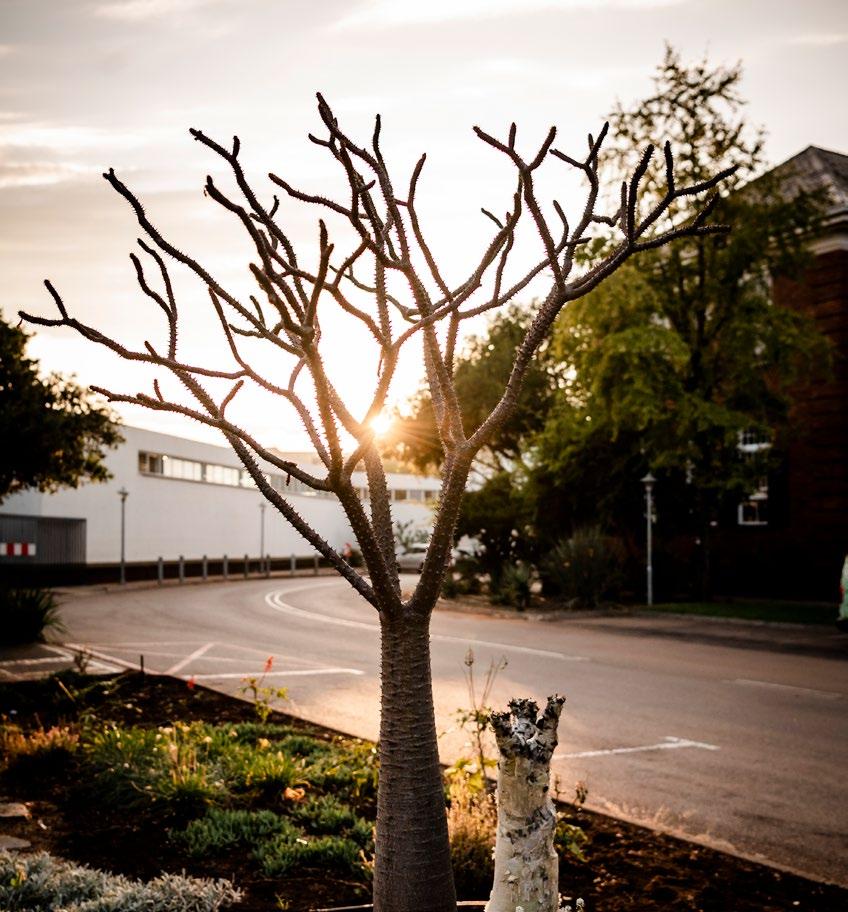


Over the past five years, the University of Pretoria has placed importance on sustainable development reporting, with the publication of annual Sustainable Development Reports and reports on the University’s engagement with the UN’s SDGs. This has been driven primarily by sustainable development being integral to the University’s strategy and pursuit of positive societal impact.
To advance its strategic intent, sustainable development principles and practices are integrated into UP’s institutional strategy. This is given expression through two broad pathways: operational sustainability – which relates to the stewardship role that the University plays as an entity in relation to governance, people practices, resource and footprint management, and relationships within host communities – and driving sustainable development through our core functions as we seek to make a difference in broader society beyond institutional boundaries. Given the global importance of the SDGs and their reflection of societal impact, our practices and actions are mapped to relevant SDGs.
From their inception, UP’s Sustainable Development Reports have followed the framework architecture shown in the figure below.
HOW WE GIVE EXPRESSION TO OUR INTENT OUTPUTS AND OUTCOMES ALIGNED ACROSS GLOBAL AND CONTINENTAL FRAMEWORKS
Operational sustainability
• People practices
• Towards the resilient graduate
• Towards the resilient campus
Our strategic intent
• An institution of society
• SD embedded within UP strategy and culture
Driving sustainability through our core functions
• Teaching and learning
• Research
• Engagement
Alignment with the SDGs and African Union Agenda 2063
UP’s sustainable development framework
SOCIETAL IMPACT
The integration of sustainable development into the University’s institutional strategy was described in detail in UP’s 2020/21 Sustainable Development Report. A limitation, however, is that further application of the framework has not been fully embedded across the University. Rather, work across operational sustainability and driving sustainability through the core functions has evolved in an organic way. This is largely a reflection of UP’s sustainable development maturation journey. Two significant factors will likely influence the future landscape and further strengthen the institution’s orientation towards sustainable development.
In October, a new Vice-Chancellor and Principal was appointed; as institutional head, Prof Francis Petersen plays a crucial role in leading and shaping the institution’s direction and priorities.
University of Pretoria 2024
Sustainable Development Report
In his immediate engagements with the University, Prof Petersen outlined five strategic priorities that are central to UP’s future:
• enhancing a people-centric approach to the University’s operations and culture;
• elevating UP’s global standing and influence;
• positioning UP as a global intellectual leader on African matters, for Africa and the world;
• leveraging technology in all aspects of the University’s work; and
• increasing UP’s contributions to societal development and community engagement.
Within this context, sustainable development remains central to UP’s strategic intent, with a stronger emphasis on support from all staff members, enablement by the Executive and senior management teams, and the intentional execution of strategic initiatives across UP’s faculties. Among other things, this will entail strengthening governance mechanisms to provide oversight on applying the framework to ensure institutionally consistent approaches and accelerated societal development and impact.
The second significant development was the initiation of the institutional strategy review process. With the current five-year strategy horizon ending in 2026, the planning process began in late 2024. A key certainty for the next strategy horizon is that UP will continue to be an institution of society, for society.
In seeking ways to amplify impact, the strategy review also presents an opportunity to strengthen integration between teaching and learning, research and engagement. While each function independently contributes to sustainable development, a more integrated and coherent approach is likely to amplify impact.
Over the next five years, we anticipate progressive maturation of our institutional approach to sustainable development and the continued pursuit of contributing towards a better world.
The integration of sustainable development principles, practices and desired outcomes into the institutional strategy has been described in previous reports. This intentional hardwiring is distinct from having a parallel or subsidiary sustainable development strategy, which prioritises a limited set of sustainable development elements or SDGs. Rather, this approach seeks to leverage the University’s core functions for societal impact across the spectrum of its work.
As one of UP’s three core functions, teaching and learning plays a vital role in advancing sustainable development and the accelerated achievement of the SDGs. To create leverage, UP characterises the nature of its contribution at different levels of complexity. At a primary level, through the capability that’s developed in graduates, each discipline contributes to a particular dimension of sustainable development – politico-legal, governance, social, economic or environmental. Capable graduates use the knowledge acquired to advance development in their future careers. Intentionally connecting sustainable development principles and practices with a focus on achieving the SDGs enables graduates to be more mindful and targeted in their efforts. At a tertiary level, establishing integrated approaches across disciplines seeks to create leverage to address the complexity associated with sustainable development more effectively.
This concept is illustrated in the figure below The initiative is a collaborative effort between the Departments of Institutional Planning, Monitoring and Evaluation, and Student Affairs.
Discrete disciplines inherently advance sustainable development and the SDGs
Intentionally connecting sustainable development and the SDGs to the work of discrete disciplines for more focused contributions
Moving towards an integrated approach across disciplines for intentional inter- and transdisciplinary work to amplify contributions and navigate complexity more effectively
To this end, in 2024, UP embarked on an innovative approach to explore how sustainable development and the SDGS are embedded within the University’s existing modules and programme offerings.
The exploration covered four thematic approaches:
• Employing advanced analytical techniques to classify and link modules to SDGs.
• Evaluating the overall impact of SDG integration within academic modules on raising awareness of the goals and advancing sustainable development.
• Investigating the sharing of modules across faculties to highlight opportunities for interand transdisciplinary collaboration.
• Revealing flagship academic programmes that demonstrate strong links with specific SDGs or SDG clusters.
We interrogated the 2024 faculty yearbooks for undergraduate programmes and the Elsevier database on SDG-linked keywords and topics. The analysis showed that SDGs and related topics could be mapped, along with the associated intensity of focus, as shown in the figure on the right.
This network visualisation, derived from UP’s curricula, reveals a highly interconnected landscape of sustainability-related themes, with ‘climate-change’, ‘health’ and ‘Africa’

















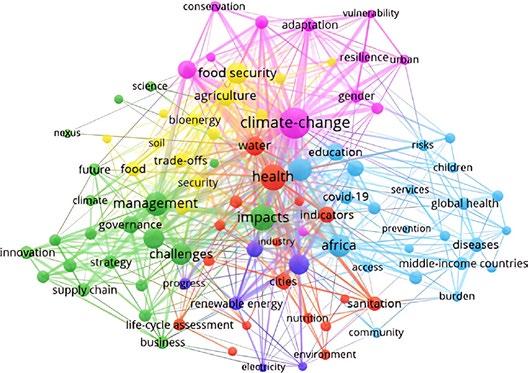
SDG and topic mapping to UP curricula
emerging as central nodes linked to critical areas such as food security, renewable energy, governance, gender, adaptation, global health and education. The clustering of these terms demonstrates that UP’s academic offerings already reflect a diverse engagement with SDGs, yet also signals the need for deeper curricular integration and coherence. For UP, this means advancing a transformative, interdisciplinary curriculum that intentionally connects these overlapping themes – bridging the gaps between science, policy, society and practice. It calls for embedding systems thinking, African contextual relevance and SDG literacy across all faculties to ensure that graduates are equipped to tackle the complex sustainability challenges of our time. This map demonstrates that UP is well positioned to lead in sustainability education – but to fully realise this potential, the University must strategically align its teaching, research and community engagement to foster inclusive, future-oriented, globally responsible learning experiences.
The next stage of mapping focused on the extent to which the SDGs have been integrated within modules and programmes at faculty level, revealing which SDGs have been given most attention. The top 10 SDGs most linked in academic programmes are shown in the figure at the top right.
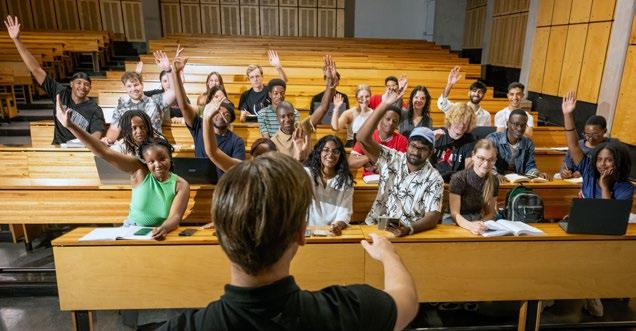
Top 10 SDGs linked most in academic programmes
When considering the SDGs within clusters, it is evident that UP’s academic programmes focus on the fundamental challenges facing humanity (poverty, inequality and hunger), resource stewardship (water and energy) and improving human existence (industry, innovation and infrastructure, and sustainable cities and communities). As discrete SDGs, education and partnerships are prioritised.
These findings share certain commonalities when evaluating SDGs with shared links across the Faculties of Humanities; Natural and Agricultural Sciences; Engineering, the Built Environment and Information Technology; and Economic and Management Sciences. The analysis also determined the top 15 degrees linked to the SDGs in each faculty.
Our stakeholders are broadly classified as internal and external: internal stakeholders refer to staff and students, while external stakeholders comprise various sectors, including the government, higher education, industry and civil society. UP recognises that collaboration and partnerships are essential for effective functioning and to amplify the impact it seeks. In our interactions across stakeholder constituencies, inclusion and mutual benefit serve as overarching principles. These principles are core to our people-centred culture. Furthermore, we believe that the way in which we interact with one another internally should be carried over to our external interactions.
UP’s governance framework enables inclusivity and provides platforms where all voices can be heard and all constituencies can be active participants in the functioning of the University. Staff members participate in various committees related to human resources processes and issues that affect employees.
This enables openness and transparency, fair and just treatment, and improves employee well-being. At an institutional level, employee representatives are on committees that are responsible for policy formulation, recruitment, skills development, employment equity, transformation and benefits management. Within faculties and professional departmen ts, employees are involved in committees that provide oversight on issues such as transformation, and health and safety.
Beyond statutory and formal structures, employees are engaged collectively and individually through a range of physical and mental wellness events and leisure activities. During wellness events and initiatives, special attention is given to those who are disadvantaged or vulnerable. Target groups include those with medical conditions and permanent disabilities, and those who are experiencing emotional or mental stress.

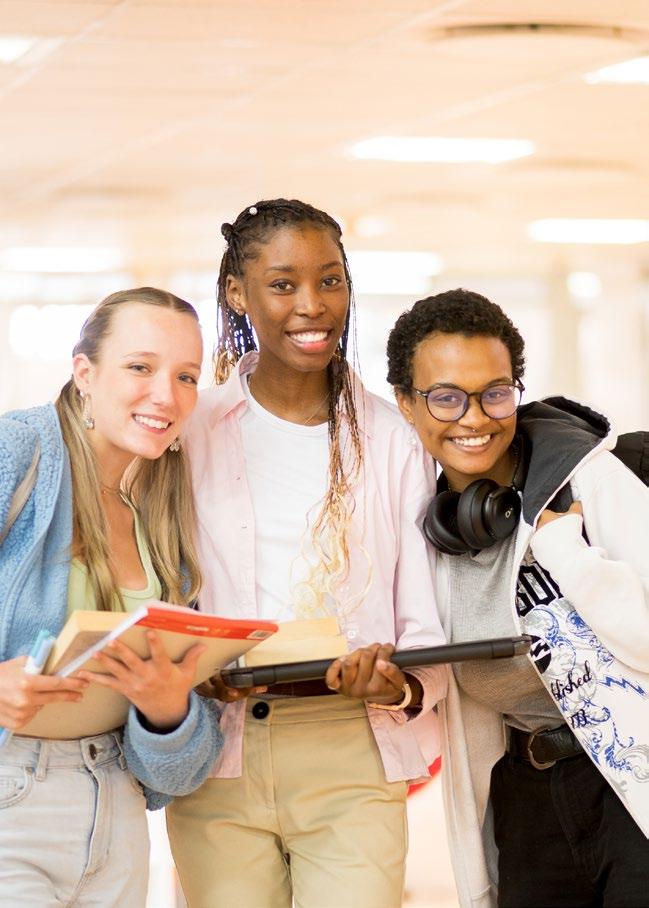
As with University staff, students are involved in campus life t hrough wellestablished formal and informal structures.
To encourage holistic development and support throughout their University journey, students are engaged in issues that are relevant to them, from matters relating to the classroom environment and academic programmes through to non-academic activities. Structured engagement and inclusion take place primarily through the Student Representative Council and its substructures, where students contribute to the overall university environment and lead processes for a vibrant, well-supported student body. Institutional policies and initiatives support comprehensive student well-being; this includes academic suppor t; physical, emotional and mental support services; and initiatives related to financial aid and nutritional support for students in need. Special attention is given to those who are disabled, disadvantaged or vulnerable.
Ultimately, the University’s structures and processes seek to create the conditions for everyone within the University community to reach their full potential and thrive as we collectively strengthen social cohesion.
Throughout the year, UP continued to engage with the diverse sectors that make up its external stakeholders. This included extensive interactions and partnering with the government at national and provincial levels, representation in multilateral organisations, industry collaborations and partnerships, and collaborating with civil society organisations at community level. Examples of collaborations and partnerships are presented as brief case studies in the section ‘Driving sustainability through our core functions’.
Inclusion and strengthening collaborative relationships will continue to be key pillars of the University’s evolving strategy. This is underpinned by our focus on increasing UP’s contributions to societal development and community engagement, and our pursuit of continuous improvement and excellence. We recognise that we can amplify our impact by working with others to make a meaningful difference.


In the section titled ‘The strategy context’, our overarching approach to sustainable development was outlined. Operational sustainability represents a key arm through which we drive our strategic intent, leveraging our institutional governance and stewardship role. This covers the staff and students that comprise the University community, and protecting the environment as it relates to our geographic footprint and our overall institutional integrity.
In this report, we focus on the work being undertaken to advance a peoplecentred culture, TuksSport’s contribution to holistic student development and success, and our efforts to create a resilient campus.
Establishing a people-centred institutional culture is central to UP achieving its purpose as an institution of society.
As articulated by the new Vice-Chancellor and Principal, the University community distinguishes who we are, and enables the institution to make a difference and drive societal impact. Institutional culture is integral to all aspects of our strategy and serves as a critical enabler. To this end, work is underway to intentionally advance a culture that puts people at the centre of what we do and how we do it.
Through the University’s sports programme TuksSport, UP is recognised for its sporting leadership. It provides a platform to push boundaries in sports performance, student well-being, sports development and sports leadership. UP students and alumni have excelled as individuals and in teams at national and international levels, and beyond sport, demonstrating active citizenship towards societal development. The ethos and values nurtured through sport, such as inclusivity, dedication, respect and honour, contribute to advancing UP’s people-centred culture.
As reported previously, UP continues to demonstrate environmental stewardship across its vast geographic footprint. This incorporates infrastructure, biodiversity and the management of energy, water and waste. In an effort to redefine the limits of sustainable development, the University is implementing a Smart Campus initiative and has expanded carbon footprint reporting to incorporate Scope 3 carbon emissions, which encompass emissions that are not directly produced by the institution.
The suite of efforts relating to people and our environment all contribute to achieving the SDGs, and in each sub-section, we articulate the relevant SDGs.
As UP reviews its strategy for the next decade, we recognise that an enabling culture is central to fulfilling the University’s purpose, advancing its strategic intent and achieving the aspiration of meaningful societal impact. On his arrival in late 2024, the new Vice-Chancellor and Principal clearly articulated his intention for the institutional culture to be centred on people. Enhancing a people-centric approach to University operations and culture was the first of five strategic perspectives that he outlined to guide the future direction of UP. This is anchored in the firm conviction that people make up the University and are at its heart. Beyond valuing humanity, in this people-centred culture, a caring and inclusive environment for staff and students is fostered, and people feel valued as they reach their full potential. They, in turn, advance the academic project and provide the requisite support to enable it.
However, the quest for a human-centred culture at UP is not new. In the 2023 Sustainable Development Report, we presented an emerging approach to developing a humancentred culture. This was initiated in response to the University’s 2022 Institutional Culture Survey, which focused on the leadership role in shaping the culture, the intentional design of desired subcultures at departmental, school or faculty levels, and evaluating the prevailing cultural maturity in relation to the desired culture.
Given the novel approach, 2023 and 2024 were primarily used to test and validate the methodology for its suitability in application across academic and professional functions.
As the process evolved, the approach was presented to the Institutional Transformation Committee, which provides oversight on progress in transformation efforts across the University, and
to deans and directors of faculties and professional departments. Different faculties and departments then self-selected to take part in workshops to design and evaluate their subcultures. A wide range of faculties participated, including the Faculties of Engineering, Built Environment and Information Technology; Education; Theology and Religion; Health Sciences; and Veterinary Science. The figure below illustrates the reach and progress made.
Workshops were undertaken as a one-and-a-half-day session or in stages, depending on the availability of a broad set of representative voices. Some completed their desired culture design, while others went further by evaluating their cultural maturities and developing a set of actions that would begin shifting the culture towards a proactive level of cultural maturity.
The process entailed ongoing learning and improvement. In addition to validating the design and evaluation frameworks, a preliminary leadership framework was developed to characterise the type of leader needed to advance a peoplecentred culture.
The leadership framework integrates Douglas McGregor’s Theory Y, which focuses on human-centred leadership, with psychologist Daniel Goleman’s dimensions of emotional intelligence and six leadership styles, as well as Ian Macdonald, Catherine Burke and Karl Stewart’s tools of leadership.
As a starting point, leaders are guided by a philosophy of human-centredness. In advancing this philosophy, they must have the requisite mix of technical, managerial, administrative and emotional competences, and be able to make use of a wide range of leadership styles for situational application. Leaders must also be skilled in the art of leadership and in using the tools of leadership. Recognising that the work of leadership is challenging, the ongoing development and provision of support to leaders is important. The leadership framework is shown in the figure on the right.
OF
• Technical competences anchored in a particular discipline
• Research • Teaching and learning
• Service delivery
• Outreach and collaboration
• Managerial and administrative competences
• Emotional competences
• Self awareness
• Social-awareness
• Self-management
• Relationship management
• Commanding – Demands immediate compliance, often used in crisis situations or to enforce standards
• Visionary – Inspires and motivates a team by setting a clear vision and direction
• Affiliative – Fosters a positive and supportive work environment by building strong, harmonious relationships
• Democratic – Encourages participation and collaboration by involving team members in decision-making
• Pacesetting – Sets high performance standards and leads by example, inspiring excellence
• Coaching – Develops individual team members and helps them to reach their full potential
LEVERAGING THE ART AND TOOLS OF LEADERSHIP
• Symbols
• Systems
• Behaviours – visible, felt leadership
Leadership framework (adapted from McGregor, 1911; Goleman et al, 2002 & 2013; and MacDonald & Burke, 2012)
The culture design framework was presented in the 2023 Sustainable Development Report, and entails devising a culture that will build trust for harmonious and collaborative working relationships and create the conditions for the generation and application of innovative, creative solutions. Applying the two dimensions of trust and solutions to our context, trust-based relationships reflect our humanity, while innovation and creativity reflect our identity as a university. The culture design framework is shown in the figure on the right.
The desired culture is purposefully designed to represent the transformational space. Characteristics of this space are consistent with the institutional values and the leadership framework.

What are the dimensions of culture that drive innovative and creative solutions?
Transformational space
• Values-led
• Purpose-driven
• Collaboration
• Co-design
• Co-creation
• Multiple streams of value
Transactional space
• Silos
• Self- and partisan interest
• Negotiation
• Trade-offs
• Zero-sum games
What are the dimensions of culture that build trust for effective collaboration?
Culture design framework (adapted from Chicksen et al, 2018)
The cultural maturity framework (right) is adapted from professor of psychology James Reason’s approach to cultural maturity, and identifies five levels, each with a distinct set of characteristics.
The levels of cultural maturity map to the culture design framework, with vulnerable, reactive and compliant levels generally falling within the transactional space, while proactive and resilient levels are transformational in nature. The desired culture is designed for a proactive level of cultural maturity against which the prevailing culture is evaluated.
To evaluate cultural maturity, participants have a broad conversation on each dimension of the desired culture and consider both quantitative and qualitative evidence for a particular level of cultural maturity. To ensure a safe space and for all voices to be heard, individual participants rate their perceptions of cultural maturity anonymously.
01 03 04 05 02
We generally don’t care about the dimension or its attributes. They are irrelevant, and it’s a case of survival of the fittest. Manipulative and political behaviours prevail.
We pay lip service to the dimensions and their attributes. We investigate when things go wrong and seek to allocate blame. Interventions are mechanical, with no sustained improvements.
We are happy to generally meet the standard although there may be occasional system failures. Often there is a “tick box” approach, and we generally do not push the boundaries.
We actively anticipate problems and look for improvements. A defining feature is that we are making significant progress towards working as an integrated team and seeing the cultural dimensions and their attributes in an integrated way.
We are fully integrated in our thinking and practice. The expression we give to our cultural dimensions and attributes are enduring, regardless of significant changes and shocks. We influence culture and practices beyond the department, faculty and University.
Cultural maturity framework (adapted from Reason, 1997)
The cultural assessment is validated and analysed to determine appropriate interventions to improve cultural maturity. The approach is shown in the figure below.
Is the assessment valid?
How significant is the problem?
Are there any red flags?
What’s going on here and what are the key issues at hand?
Are there any opportunities for leverage?
What are the critical few things that we will do in the next phase to shift our culture?
Do we have confidence that our actions will contribute to shifting us up the maturity curve?
Data, events and incidents
Consequences and impacts
Early warnings of impending disaster
Underlying drivers
Contributing factors
Linkages and dependencies
Priority areas and actions
Testing and validation
Approach to analysis and developing interventions to shift cultural maturity

The critical requirement for meaningful interventions is to address the underlying drivers of the current realities faced, particularly where linkages and dependencies are identified. This creates the potential for leverage. An example of interventions developed in one of the workshops held is shown below.
Workload and work distribution
Fair and just treatment
Embracing diversity and complexity
• Have honest conversations within sections to look at work loads and work distribution.
• Intentionally break down silos within sections.
• Find ways to pull together, support each other and balance the load.
Inclusion and collaboration
• Show appreciation to others for their contributions.
• Researchers, technicians and students to work together on defined projects.
• Profile technologists and include them in the research day programme.
• Include and value administrative staff as key contributors.
• Break down silos across sections.
• Explore collaborations across the different laboratory disciplines.
• Explore opportunities to rotate laboratory staff through the different laboratories.
An example of interventions developed in a culture design and evaluation workshop
Informed by a common framework, the subcultures designed across academic and professional entities were similar, and all were consistent with universal human values and institutional values. A framework approach enabled institutional consistency while acknowledging diversity across the different university functions and allowing the principles to be internalised and translated into locally relevant contexts. At the same time, the process revealed that we are all human beings who are held together by a common identity with a shared purpose and values.
Building on the positive experiences and lessons learned from using an organic approach, and following the demonstration of its broad applicability, the suite of frameworks was formally approved for institutional use in 2025. While retaining a bottomup process, the specificities around roll-out will be determined at faculty and departmental levels, informed by the unique dynamics and complexities of each entity. The consolidation of the various culture designs will be undertaken at departmental, faculty and institutional levels.
The process of shifting cultural maturity is an iterative one and is anticipated to take several years. It is reasonable for the University and its subsidiary entities to reach a proactive level of cultural maturity over a five-year horizon.



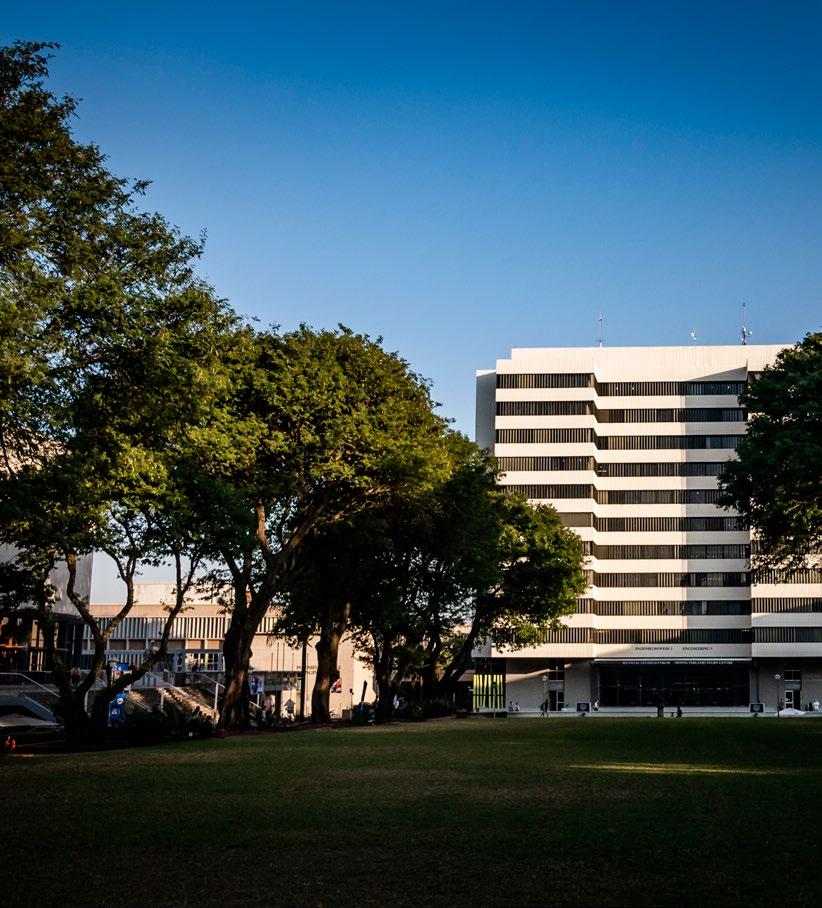
The Department of Student Affairs is the custodian of organised student life (OSL) and plays a key role in providing holistic support to students throughout their university journey. The department works with a variety of internal and external partners to offer co-curricular and extracurricular activities that foster and sustain a transformed, inclusive, equitable university student community and contribute to the development of socially responsive graduates. UP’s studentcentred approach to development and well-being has been extensively described in previous reports (2021 to 2023). This time, we outline student governance structures in more detail and demonstrate how they translate into a vibrant, thriving student community.
A broad, connected network of structures enables all students to participate in organised student life. The network’s functioning is guided by UP’s Constitution for Student Governance, which is founded on the principles of dignity, equal recognition and respect for all individuals and communities, as well as a commitment to transparent and efficient student governance. Responsible student leadership is encouraged and enabled by promoting equal opportunity across the student body. Furthermore, the rights of all students are safeguarded.
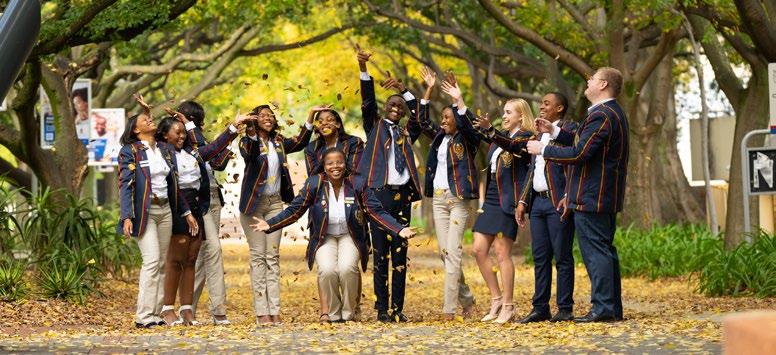
The Student Representative Council is at the apex of the network and spans structures that are concerned with UP residences and day houses, faculty houses, more than 100 registered student societies, and key committees for student sport, culture and UP RAG (Reach Out and Give). Day houses are an important inclusion mechanism for students who do not live in UP residences (TuksRes). They enable these students to participate in organised student life activities and help them to build networks and expand their academic and social lives through relationships with all organised student structures. Additionally, special committees such as STARS Mentorship, Golden Key, and Valuing Inclusivity and Transformation and Awareness (VITA), focus on student development.
The architecture connects curricular and extracurricular activities, enabling holistic student development and support. The structures are fully led by students, and through active ownership with broad participation of the student body, a vibrant, thriving student community is fostered.
As a collective, the committees, houses and societies have a strong sustainable development focus that spans social cohesion, cultural diversity and inclusion, as well as community and civic engagement. By working closely with residence house committees, day houses, faculty houses and societies, the structures responsible for student culture and UP RAG organise activities that generate excitement and engagement, and cultivate a strong sense of citizenship in the true spirit of ubuntu.

There are several examples of student-led events and activities throughout the year, and a few, non-exhaustive examples will be highlighted to demonstrate the diversity and richness of organised student life. Student participation in sport is presented in more detail in the TuksSport section of the report.
At the beginning of the academic year, Hatfield campus comes alive for 1nSync, a hugely popular annual event tailored for first-year students. The initiative, organised by the Student Culture Committee, aims to ease the transition from high school to university and create a sense of belonging among new students. First-years in residences, day houses and faculty houses, along with their executive committee members, choreograph acts and have five days to rehearse. During this time, each structure dedicates two hours a day to rehearsals, with a designated member from the Student Culture Committee supervising each structure’s practice session to ensure compliance with the show’s guidelines. The rehearsals culminate in stellar routines and performances for friends and family.
The flagship UP RAG on Hope Day is an annual event marked by a spirit of generosity and community engagement. Various activities include the UP’s Got Talent showcase, sports events and a bustling craft market. This student-driven initiative serves as a platform for UP students to make a meaningful impact on their community. Faculty houses, residences and other structures raise funds through
the sale of crafts created primarily from recycled materials. Activities may be led by individual structures or collaborations across structures, with the proceeds being donated to the charity of their choice. Non-perishable food items are also collected throughout RAG Week and donated to the UP Student Nutrition and Progress Programme. An awards ceremony celebrates individuals for their talents and contributions to society. The success of the RAG initiative is a testament to the UP WAY, which encourages everyone to use their unique skills, compassion and creativity to make a positive impact on society.
Communication, sharing stories and showcasing activities are vital to strengthening and sustaining the richness of student life. Established in 1939, PDBY (Print, Digital and Broadcast Youth Media) has established itself as a leading student publication in South Africa. The newspaper is distributed in both print and digital formats to the UP community. Covering news, sport, features and entertainment, PDBY is also used as a development platform for young journalists through on-the-job training in a newsroom work environment.
Overall, student life at UP is alive and well. Connecting a rigorous academic environment to enriching co- and extracurricular experiences nurtures the complete graduate – one who is socially aware, an active agent for social cohesion and an emerging leader for South Africa, Africa and the world.

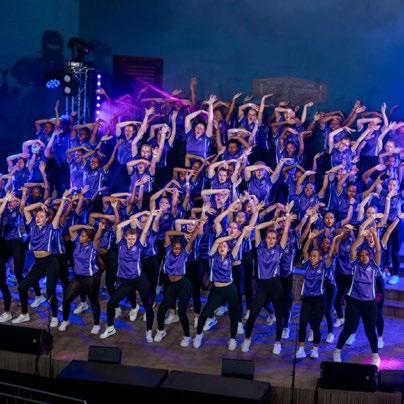

TuksSport is recognised as a leading university sports programme in Africa, and has a rich heritage and culture that continue to evolve in dynamic ways. As the professional support department responsible for sport at UP, TuksSport is a platform to push boundaries in sports performance, development and leadership, and student well-being. Guided by a compelling purpose to pursue meaningful impact using sport as a launchpad, UP students and alumni have excelled as individuals and in teams at local, national and international sporting levels. Beyond sport, they demonstrate active citizenship to achieve societal development. This is underpinned by a strong ethos and culture characterised by values such as inclusivity, dedication, respect, honour and pride in wearing the UP colours and stripes.
Building on a 115-year history of sport at UP, TuksSport Pty Ltd was established 22 years ago to serve as a one-stop facility to coordinate and strengthen the University’s sporting activities, which are a significant part of the UP identity. Using an ecosystem approach, TuksSport supports the futures of learner athletes through TuksSport High School, and TuksSport clubs that compete in national University Sports South Africa (USSA) and Varsity Sport/Varsity Cup competitions. TuksSport hosts and coordinates more than 30 sporting codes, focusing on recreational opportunities for students at UP as well as accelerated development and support for high-performing athletes through its High Performance Centre (HPC). The HPC provides holistic health and well-being support in partnership with UP’s Sport, Exercise Medicine and Lifestyle Institute, and builds capability in sports management and coaching. Additionally, TuksSport hosts major sporting events at its world-class facilities and, through the HPC, provides hotel and conferencing facilities that support a vibrant, self-sustaining sporting ecosystem.
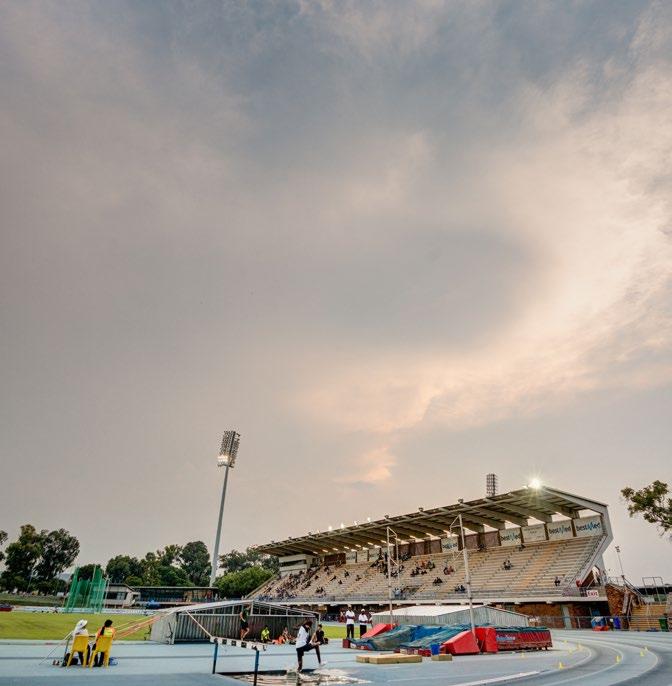
TuksSport High School is formally registered with the Department of Basic Education and is located on UP’s Hillcrest sports campus. TuksSport and TuksSport High School seek to bridge basic and tertiary educational ecosystems to nurture sporting and academic talent for dual excellence. Sporting activities are shaped by the club’s sporting codes and sports academies of the University and school, with learners also having access to the broader TuksSport infrastructure and support. Some school alumni have gone through the TuksSport system to be internationally successful while graduating with UP qualifications. Almost half of the high school students are drawn from rural areas and are funded in various ways, including by donors. The school also enjoys a long-term partnership with the South African Football Association as the dedicated school for the South African Under-17 national soccer team.
Student athletes are the bedrock of TuksSport’s focus. Thousands of UP students participate in recreational sports activities on campus and in more competitive clubs and leagues.
More formal club programmes – which are open to students, staff and community members – include internal leagues, junior programmes and academies for scholars and elite young participants; and participation in amateur leagues and elite programmes for competitive sport at national and international levels. Collectively, the programmes form a performance pipeline and pyramid for student athletes all the way to national and global sports markets. Bursaries in various sporting codes are available to high-potential student athletes.
With the ecosystem creating a strong pipeline of talent, the University is well represented by student athletes in USSA national competitions; some also represent South Africa in international university and college competitions. These include the Confederation of Universities and Colleges Sports Association (CUCSA) Games and the Fédération Internationale du Sport Universitaire World University Games. As evidence of UP’s involvement in university sports, in 2025, TuksSport will be hosting the CUCSA Region V Games with the Tshwane University of Technology. Beyond university competitions, UP student athletes and alumni form a significant portion of the teams representing South Africa at the Olympic, Paralympic and Commonwealth Games.
Working in conjunction with the Student Sports Committee (SSC), University students perform a wide range of roles within TuksSport and enjoy development opportunities beyond participation. Internal leagues are managed through the SSC in conjunction with TuksSport clubs, and drawing from the University’s residences, day houses, societies, and faculty houses as well as University-accredited accommodation, 51 teams competed in football, 79 in netball, 37 in hockey, 20 in rugby, 25 in tennis, 23 in basketball and 16 in cricket in 2024. Students are also involved in club administration, team management, coaching and technical officiating. In addition to event management, other support roles include the provision of first aid, and medical and fitness support in collaboration with UP’s academic departments.
Extensive indoor and outdoor sporting infrastructure supports the wide range of activities on offer, and is able to host national and international sporting events. Indoor infrastructure includes a multipurpose sports hall with a 2 500-seat capacity and four secondary halls; indoor heated swimming pools; and three strength and training gymnasiums. Outdoor facilities range from rugby, football and athletics stadia to multiple fields and courts for football, hockey, netball, basketball, volleyball, tennis and squash.
These are all well maintained by teams of maintenance, gardening, cleaning and administrative staff at UP’s Facilities Management.
TuksSport’s mission of holistic academic and sporting success is supported by various internal and external partners. Internal partners ensure excellence and develop capacity across the ecosystem. Various funders and sponsors support programmes and provide bursaries. In 2024, TuksSport partnered with the national Department of Sport to host the Fédération Internationale de Basketball Under-18 AfroBasket basketball competition for Africa, and formalised a five-year partnership with the Gauteng provincial Department of Sports, Arts, Culture and Recreation to host the Gauteng Provincial Academy Programme.
Reflecting the overall success of 2024, UP-Tuks members made up almost 30% of Team South Africa at the CUCSA Games; 16 represented South Africa in the Fédération Internationale du Sport Universitaire World University Games; and 22 UP athletes and alumni represented South Africa at the Paris Olympics, including swimming gold and silver medal winner Tatjana Smith. Success, however, was not limited to sport – 270 student athletes graduated across the University’s faculties, having managed the tough balance between academic and sporting demands.
The suite of successes exemplifies how UP and TuksSport create and provide platforms for students to compete at the pinnacle of their sporting abilities and contribute to society as active citizens. These efforts extend beyond individual high performance to the holistic development and well-being of the masses of students participating in sport, and to the strengthening of sports ecosystems beyond the University.
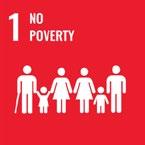
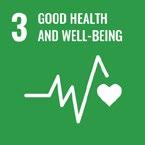
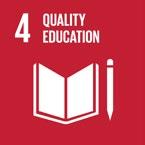

With its seven campuses and related infrastructure, the University of Pretoria has a vast geographic footprint. Details of the campus footprint have been published in previous Sustainable Development Reports; there were no year-on-year changes to the campus buildings and coverage information for 2024. The total tenement size amounted to 1 733 hectares (ha), with 749 buildings covering more than one million square metres (m2). For carbon footprint reporting purposes, the assignable floor area amounted to just over 650 000m2. In addition to the stable footprint, there were no material changes to UP’s structure or operating model.
With a University community of about 60 000 people, UP makes use of a significant amount of energy and water, and produces different forms of waste. Its campuses are interspersed within host communities with two-way interactions between the University and its neighbours.
Framed by the UP Campus Spatial Development Plan, infrastructure development and maintenance focus on supporting the University’s mission and objectives of academic success, and advancing research, social transformation and institutional sustainability. Through its five-year plan, ongoing initiatives seek to optimise campus spaces for academic excellence and enhanced student experiences. These include state-of-the-art facilities that encourage collaboration and innovation, enable accessibility and navigation, and create vibrant social spaces that promote engagement and well-being.
Infrastructure development, maintenance and refurbishment have also focused on creating back-up energy and water capacity to support resource security and reduce the University’s environmental impact. In 2024, infrastructure funding from the Department of Higher Education and Training contributed significantly to initiatives that optimised resource efficiency and reduced environmental impact.
Previous reports outlined the significant threat of energy insecurity due to high levels of loadshedding during 2022 and 2023. While the threat remains, in 2024 a significant reduction in loadshedding events was experienced, with a concomitant increase in the amount of electricity purchased from the power utility. Conversely, significantly less diesel was purchased to run standby generators. Notwithstanding the reprieve, UP has continued to advance the installation of photovoltaic (PV) panels on new or existing buildings under the Power Purchasing Agreement (2018).
In 2024, in addition to installing PV systems at TuksSport High School [100 kilowattpeak (kWp) – maximum power generation at peak sunlight], investigations into the installation of a 2 megawatt (MW ) solar plant on Hillcrest campus was initiated. The energy generated by solar PV is shown in the figure on the following page.
The longer-term pipeline of energy efficiency and renewable energy projects continues to be developed.
As the regulatory environment evolves, UP can expect increasingly stringent compliance requirements in the area of resource efficiency. As part of South Africa’s broader goal to reduce energy utilisation in support of global climate commitments, Energy Performance Certification (EPC) will become compulsory for structures that are bigger than 1 000 square metres (m2). Affected buildings will be required to display energy performance ratings to reflect their efficiency and overall energy consumption. Compliance deadlines will be determined as legislative processes evolve.
As such, the University is assessing and certifying the energy performance of its qualifying buildings and implementing further energy-efficient interventions.
The process includes conducting detailed energy audits to determine baseline consumption levels; identifying opportunities for improving energy efficiency; and implementing upgrades such as more effective insulation and installing energyefficient lighting systems and heating, ventilation and air conditioning systems.
In a related initiative, the Department of Facilities Management has introduced a cutting-edge Smart Campus automation and reporting system to enhance its sustainability efforts and streamline operational efficiency. This new system integrates Internet of Things sensors, data analytics and real-time monitoring across campus facilities to track energy use, water consumption, waste management and carbon emissions. By centralising data from various sources, the system allows for precise, data-driven decision-making to address inefficiencies and optimise resource use. The system’s automated reporting capabilities ensure that emissions data and sustainability metrics are readily available for compliance reporting and public transparency. Leveraging the new Smart Campus automation system with monitoring energy use across campus buildings further enables real-time tracking of energyefficiency improvements. Through these efforts, UP aims to comply with and exceed EPC standards, supporting its long-term sustainability goals and reducing the operational costs associated with energy consumption.
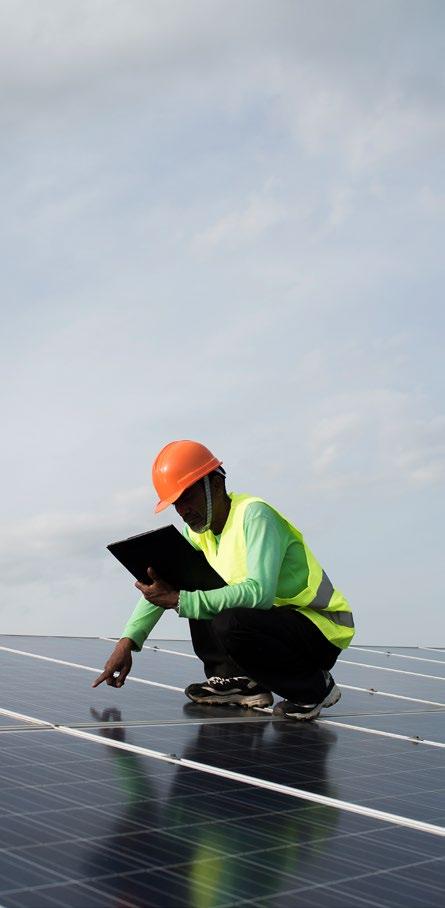
In keeping with its environmental stewardship role, since 2017, UP has been measuring and reporting on its greenhouse-gas (GHG) emissions and carbon footprint. Historic reports were limited to Scopes 1 and 2, which cover direct emissions and those related to purchased electricity. Over the past two years, as the quality of measurement and reporting improved, certain inaccuracies in measurement were identified and have been addressed.
During 2024, the University broadened its reporting by including Scope 3 emissions, incorporating indirect activities and sources of emissions such as purchased goods, employee commuting and waste generation. While Scope 1 and Scope 2 emissions encompass those from direct operations and purchased electricity, Scope 3 reveals the environmental impact of UP’s extended activities and relationships, providing a fuller picture of its contributions to greenhouse-gas emissions. The expanded reporting was coupled with setting an aspiration for netzero emissions by 2050, in line with national and global commitments. Additionally, UP pivoted from reporting based on the operational control approach to the financial control methodology. Financial control refers to the authority of the University to direct its financial and operational policies with a view to deriving economic benefits from its activities.
Broadening the scope of assessment and adopting a financial control approach help to increase the transparency, accuracy and reliability of our carbon footprint reporting.
Using external specialists and consultants, retrospective analyses were undertaken; 2023 was used as the baseline year for comprehensive and accurate measurement and reporting. Establishing 2023 as the baseline year for future reference entailed completing UP’s first comprehensive audit of Scopes 1, 2 and 3 emissions, ensuring that all sources of greenhouse gases were systematically accounted for and reported. This timing aligned with national policy shifts and international climate commitments, and provides a robust foundation for aligning the University’s carbon reduction targets with evolving environmental standards. Total carbon emissions for 2023 and 2024 along with the breakdown for Scopes 1, 2 and 3 are shown in the figure below.

The total emissions recorded for 2024 were 74 868 tonnes of carbon dioxide equivalent (tCO2e). This represents a decrease of 10 490 tCO2e compared to the 85 358 tCO2e reported for 2023, and is largely attributable to the sharp reduction of loadshedding events in 2024.
The inclusion of Scope 3 emissions explains the increase in total emissions compared to previous years. This is reported in UP’s annual Carbon Footprint Report, which also includes details of total emissions broken down by scope and a clear explanation of new sources now included in the assessment. In view of the changes, the University engaged with stakeholders on the 2024 Carbon Footprint Report to explain the increase in emissions reported.
Initiatives to achieve net-zero targets will focus on:
• enhancing awareness and strengthening a culture of conservation;
• improving energy efficiency and expanding the use of renewable energy;
• sustainable transportation;
• compliance with Green Building Standards;
• waste reduction and recycling;
• ongoing community engagement; and
• effective monitoring and reporting with datadriven decision-making.
Waste produced from the University’s operations falls under Scope 3, as it generates GHG emissions during disposal and treatment. Due to UP’s extensive academic, administrative and residential facilities, sources of waste include daily operational activities, functions and events, food services,
laboratories, and residential living. Emissions are driven by the process of sending waste to landfills, composting and Bokashi (the conversion of organic waste into nutrient-rich soil), transporting waste material, and the energy used in recycling processes.
In support of sustainable waste management strategies, UP encourages the campus community to practise waste reduction, such as minimising single-use items, sorting waste more efficiently, and promoting recycling and composting to divert waste from landfills. Through its Zero Waste to Landfill contract for residences and housing campuses, all waste generated by residences and housing will be diverted from landfills to recycling, composting and waste-to-energy facilities. UP also has a three-year contract with a service provider to minimise waste sent to landfills from its academic campuses, ensuring that waste generated across lecture halls, laboratories and administrative offices is redirected into circular economy pathways. Additionally, sustainable waste management practices across campuses are supported by educational initiatives for students and staff as well as partnerships with eco-friendly disposal vendors. Codifying practices into policy is underway and expected to be completed in 2025. Details of general waste to landfill, waste diverted to recycling and composting, and hazardous waste generated are shown in the respective figures on the right.
The University utilises a significant amount of water due to its campus facilities, student and staff populations, and various research and laboratory-intensive programmes. The imperative for water stewardship is compounded by climate change and regional water scarcity, which often affect both the availability and cost of water. For UP, balancing water consumption with sustainability goals continues to be a priority, as excessive water use has an impact on the environment and increases operating costs with risks to the institution’s longterm resilience.
UP reports comprehensive data on water usage, tracking total water withdrawal, consumption and discharge by source. In meeting its commitments, the University engages in water stewardship by implementing conservation strategies, and reporting transparently on water risks, efficiency initiatives and consumption impacts. Guided by the UP Water Management Policy, the institution works towards strengthening a culture of water conservation and sustainable water use. A detailed Water Management Plan translates the policy into a coherent, coordinated set of actions. All activities are conducted within the requisite legal framework.
Various water conservation projects and activities increase awareness and commitment to protect the resource and optimise its use across the University. The design of new buildings and refurbishment of existing ones include systems to reduce usage and wastage. This is supported by preventative and scheduled maintenance, early leak detection and timely intervention to prevent water losses. Reducing the University’s large-scale landscape water use has been addressed by introducing water-efficient irrigation systems, implementing water-wise gardening and using recovered water sources. Reclaimed water is safely used, and rainwater is harvested and stored wherever possible. Storage tanks and reservoirs are also used to store borehole water. Figure 18 shows the amount of water purchased from the local municipality in 2023 and 2024.

Water purchased from municipality in kilolitres (Kl)
Effluent from the Prinshof and Onderstepoort campuses is released under an annual licence from the municipality.
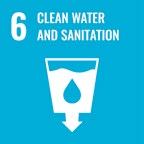

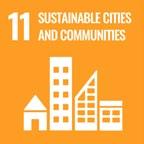

Advancing the academic project, which encompasses teaching and learning, research, and community engagement, is at the heart of UP’s mission. Our core functions are the pathway to societal impact, and determine our position as an intellectual leader, our contributions to societal development, and our global standing and influence. They are underpinned by self-reflection to ensure relevance and improvement in the pursuit of superior quality and excellence.
Our landscape continues to be characterised by complexity, uncertainty and disruption.

The challenges of poverty and inequality remain unresolved at global, continental and national levels, and are influenced, and often exacerbated, by clusters of challenges that affect regions, countries and, by extension, higher education. These include:
• a changing geopolitical landscape, instability, conflict and uncertainty;
• the impact of changing global demographics and identity politics on Africa;
• unstable economic trends and the associated challenges of meaningful livelihoods and wellbeing;
• climate change, ecological crises and planetary boundaries;
• the future of knowledge, and of the sciences and humanities;
• the multiplier effect of rapid technological change, artificial intelligence and digital transformation; and
• societal transformations and the future of work.
Within this context, a structural reset of higher education systems is underway. There are four critical dimensions to this reset and its potential reconfiguration: how we give expression to the academic project; our interfaces and interconnectedness with society; ensuring translation of our outputs into impact; and amplifying those impacts for enduring, transformative societal change.
Universities are increasingly being called upon to be more in touch with society’s needs and expectations, ensure dynamic relevance of the academic project as the world changes, strengthen the integration of education and research, and deepen engagement with industry, the government, the academy and civil society. These objectives can be met by engaging multiple stakeholders to create leverage, thereby amplifying the collective impact to drive faster, systemic and transformative changes in society. This entails strengthening societal connections, and enhancing foresight and agility to ensure responsiveness to evolving dynamics in society. The importance of collaboration and partnering cannot be emphasised enough: we recognise that we cannot make the difference we desire on our own – collaboration serves as a powerful source of leverage, and the networks we create will enable systemic resilience.
As with previous Sustainable Development Reports, in this section, we present selected examples of the impact we’ve made in society with regard to each of our core functions. These case studies reflect our efforts to advance humanity through knowledge that serves the public good, undertake research that addresses society’s most urgent challenges, and provide education that develops graduates who are skilled, adaptable and ready to lead in a complex, rapidly evolving world. The selected case studies affirm our prioritisation of greater integration of education and research, inter- and transdisciplinary initiatives as being crucial to responding to complexity, strengthening societal and community orientation, and the imperative to collaborate and partner.
The section is organised along the broad themes of sustainable economies; life, our planet and technology; and inclusive societies and capable institutions. Considering that societal challenges are often complex and traverse different domains of sustainable development, there is extensive overlap across the themes.
The examples presented are not exhaustive. Rather, they offer a balanced reflection of efforts across UP’s nine faculties and business school to translate institutional strategy into action. In addition to the qualitative narrative on initiatives undertaken, data on graduate and research outputs for each faculty are also presented as quantitative indicators of our societal contributions.
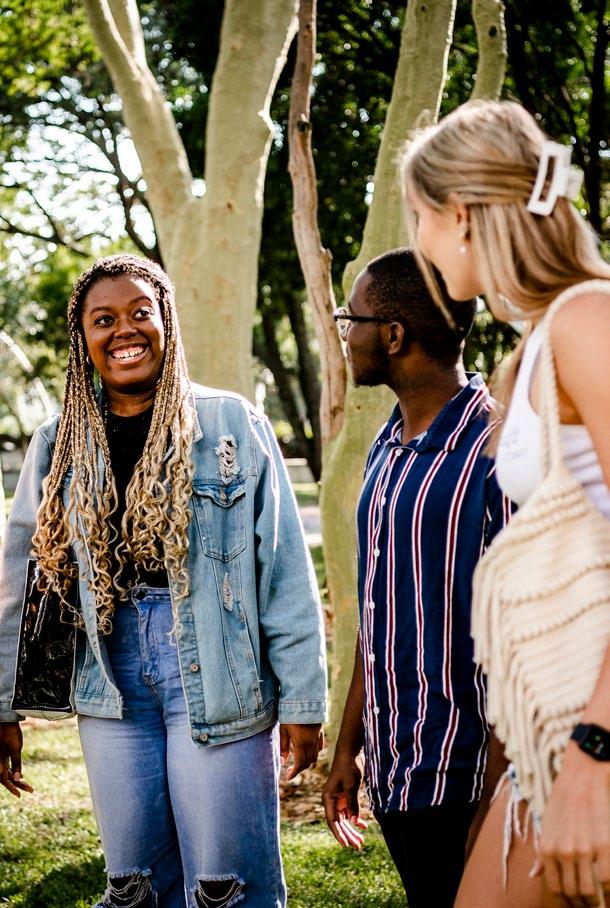
The sustainable economies cluster comprises the Faculty of Economic and Management Sciences (EMS) and the University’s business school, the Gordon Institute of Business Science (GIBS).
In recognition of International Workplace Bullying Awareness Week in October 2024, UP’s Centre for the Future of Work hosted an open event to discuss workplace bullying. Amid a rapidly evolving working landscape, workplace bullying is becoming what experts call a silent epidemic, where emotional and psychological damage is inflicted on individuals, thereby eroding the foundations of professional relationships and workplace culture.
The event brought together leaders and practitioners from different sectors to engage on the implications of workplace bullying, the need to prioritise mental health and wellness, and foster psychological safety in workplaces. During the discussions, a range of issues and insights into its widespread occurrence emerged, and it was acknowledged that workplace bullying often remains unaddressed as victims grapple with fear and stigma that discourage them from speaking out. The introduction of hybrid and digital work models have introduced further complexity, increasing the urgency to confront the issue. Crucially, the event also examined how digital platforms and tools – such as email, instant messaging apps, project management systems and video conferencing – are increasingly being used as vehicles for bullying in remote and hybrid work settings.
The event explored various organisational factors that enable bullying to thrive, such as poor communication, lack of clear policies and inadequate leadership training. Panellists highlighted how the lack of digital communication norms can contribute to misunderstandings, passive-aggressive behaviour and exclusionary practices, making it easier for cyberbullying and microaggressions to go unnoticed. The complexities of power dynamics in workplace bullying were also examined, along with the interaction of various identities such as race, gender and socio-economic status.

The absence of an intentional yet nuanced approach to understanding and addressing workplace bullying leads to the creation of environments where negative behaviours can flourish, undermining the core values of respect and collaboration that are essential for a successful workplace. The profound effects of workplace bullying extend beyond victims to affect bystanders and the overall work culture. Witnesses to bullying often experience helplessness and guilt for not speaking out or intervening. Particular attention was given to digital silence, hostile tones in emails, oversurveillance via digital tools and exclusion from virtual meetings; these
were recognised as subtle yet harmful forms of digital-age bullying.
The event resonated with internal and external participants, elevating awareness and creating a greater sense of individual and collective agency in responding to the challenge. At an institutional level, it supported the work being undertaken to strengthen a people-centred culture through the creation of safe spaces for honest dialogue.
As the conversation around workplace bullying gains momentum, events such as this serve as platforms for change, reinforcing the need for prioritising mental and emotional health in all types of workplaces. Importantly, they also call for new digital policies and training initiatives that address cyberbullying, digital civility and respectful online engagement. By fostering an environment of understanding and support, organisations can work towards breaking the silence around workplace bullying and create safer, more inclusive workplaces for everyone.

During the year, GIBS produced South Africa’s first Workplace Well-Being Report in collaboration with October Health. The report provides insight into the overall well-being of working South African and aims to track this over time. It was based on a sample of 500 local participants across six dimensions: mental, physical, social, emotional, work and financial well-being. It also considered the drivers of well-being by measuring it across demographics and the impact of hybrid work.
The report found that while people experience increased levels of stress that, since the COVID-19 pandemic, they also feel more empowered to speak about their mental health. Notwithstanding the challenges, workers have cultivated strong coping mechanisms and support systems that allow them to maintain high levels of overall well-being. Apart from financial well-being, scores across the other dimensions were generally high, indicating remarkable levels of fortitude among workers.
The report identifies significant implications for maintaining workplace well-being. Firstly, we need to shift our beliefs, behaviours and attitudes towards well-being. Mental and emotional
health can’t be separated from work life, and measuring them are part of developing an individual’s ability to manage their emotions constructively. Leadership plays a central role in this. Trust in the organisation and its leadership with the belief that a manger is equipped to support employee well-being had the most positive association with the overall well-being of respondents, the report found. This entails the quality of relationships between direct managers and subordinates, leadership across the institutional hierarchy, and a balanced institutional approach to managing both performance and well-being.
Furthermore, recognising the importance of well-being on organisational success and underpinned by authentic caring, it is important to critically review employee assistance programmes, which are often reactive and fail to consider well-being holistically. Integrating elements of performance psychology, traditionally used by professional athletes, into employee wellness programmes can enhance individual resilience and mental toughness, and optimise team performance.


Research teams from UP, Curtin University, the University of Mpumalanga and the Australian National University embarked on a research initiative focused on gender equality and energy transitions. This interdisciplinary effort, initially led by UP’s Energy Economics Research Unit in the Faculty of Economic and Management Sciences, was awarded a grant from the Partnership & Research Development Fund of the Australia Africa Universities Network. The grant will support the continued development of this important collaboration, which aims to generate impactful research and policy insights at the intersection of gender and energy in both African and Australian contexts.
The partnership will combine the strengths of all partner institutions to explore issues, and foster mutual learning and advancement in these fields. Its primary objective is to deepen the understanding of gender disparities in the context of energy poverty and transitions. This is timely, as the world faces the dual challenges of achieving gender equality and sustainable energy solutions.
Preliminary findings indicate that gender inequality manifests differently in South Africa and Australia because of their distinct socio-economic and historical contexts. In South Africa, several policies and legislation, such as the Employment Equity Act (1998), were developed to ensure equal opportunities for previously disadvantaged groups as the country grapples with the legacy of apartheid and systemic inequalities. In Australia, the Workplace Gender Equality Act (2012) aims to address gender inequality with special focus on corporate gender inclusion, equitable pay and leadership representation.
Drawing on their similarities and progress of gender equality efforts, both countries have valuable lessons to offer. As such, this collaboration will harness key insights to foster gender-inclusive economic growth. Significantly, gender inequality worsens the impacts of energy poverty, with women often bearing the burden of energy deficits in rural areas and low-income households. Energy transitions present both opportunities and challenges for gender equality.
The collaboration is exploring how energy transitions can be managed to mitigate inequalities and ensure that women benefit equally from sustainable energy solutions.
Computable general equilibrium modelling is being applied to analyse the economic impacts of gender equality and energy policies.
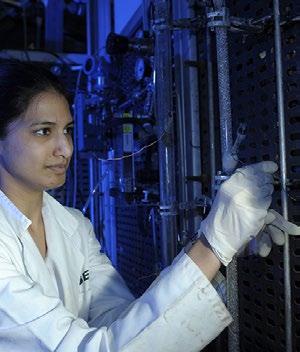
By addressing the gendered dimensions of energy development and promoting inclusive energy transitions, the project contributes to more equitable and sustainable development outcomes. The international partnership between South Africa and Australia exemplifies the spirit of the global cooperation needed to achieve the SDGs, while generating policy-relevant insights to advance gender-responsive energy strategies.
Through the collaboration, actionable insights will inform policy formulation to drive meaningful change in South Africa and Australia. This represents a significant step towards addressing gender inequality and energy transitions.

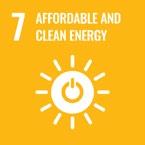

A team of academic success coaches (ASC) in the Faculty of Economic and Management Sciences comprises four UP alumni with master’s qualifications and backgrounds in psychology and social work. Driven by a sense of purpose to promote student success, these women are well placed to understand student challenges and provide the necessary support.
University life requires students to strike a balance between their social and academic lives. For firstyear students, the transition from high school to university is a significant shift, and involves navigating a new environment and adjusting to new academic demands. The challenge is even greater for first-generation students and those dealing with personal challenges.
A key focus of the ASC team is to support a seamless transition for students by taking a holistic approach to well-being. The team promotes a positive university experience and fosters a supportive academic environment that is conducive to learning. To enhance academic progression, the readily accessible team monitors student performance and provides guidance to help them reach their academic milestones.

Common challenges that students face are procrastination and poor time management; the ASC team assists them with skills and techniques to overcome these difficulties. This includes showing them how to draw up structured schedules, and how to incorporate a healthy diet, exercise and sufficient sleep into their routine. Students with social, emotional and financial difficulties are guided through institutional systems and support mechanisms.
In an innovative initiative, more than 50 senior students volunteered to assist first-year students navigate their academic journey. Over two days, first-years were equipped with study techniques to tackle high-impact modules that represent critical pathways to degree completion. The initiative is mutually beneficial as it established peer networks and support groups, and seeks to foster a sense of belonging and fulfilment among students. Based on its success, the initiative will be run twice a year.
In addition to achieving personal fulfilment, the work of the ASC team contributes to their personal and professional development as women leaders in the workplace.
Juggling multiple roles can be challenging for them, especially with the high volume of requests and disruptions, which include urgent enquiries for assistance. Being versatile and flexible enables responsiveness to change and resilience, although these individual attributes must be coupled with institutional support systems and networks.
In line with UP’s ethos and purpose, the ASC team plays a crucial role in advancing the academic project. Their efforts to support student success are a reflection of the University’s people-centred culture.


In August 2024, GIBS and financial services company Absa established the Absa Chair in Entrepreneurship, which will serve as a collaboration to ignite Africa’s entrepreneurial spirit. The initiative marks a significant milestone in the two entities’ commitment to fostering innovation and entrepreneurship in South Africa and Africa. The partnership will oversee the establishment of various programmes, including a school-based incubation hub, practice-based research, thought leadership and the creation of the Absa African Entrepreneurship Index.
The school-based incubation programme targets youth in school, recognising that young people who are enterprising and entrepreneurially minded play an important role in shaping the future of our continent. It will include establishing hubs of entrepreneurial activities within schools and train teachers to become advocates for start-ups. The programme will position entrepreneurship as a viable career choice among high school students and school leavers. Additionally, a scalable implementation model will be established for South Africa and partner schools in Kenya and Ghana.
Through the partnership, programmes will be grounded in evidence-informed entrepreneurial activity, in collaboration with universities in East and West Africa. Incorporating input from institutions in Ghana, Kenya and South Africa, the Absa Entrepreneurship Index will be launched in 2025.
The partnership will intentionally bridge the gap between theory and practice by promoting practical scholarship and innovative thought leadership particularly in African entrepreneurship. Thus, both scholars and practitioners will contribute to driving sustainable entrepreneurial growth across the continent.

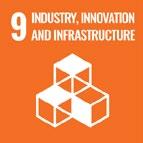
In July 2024, UP hosted entrepreneurs from the Mamelodi Business Hub and international students from Germany, Brazil, Vietnam and Poland. The week-long engagement was arranged as a collaboration between the Sustainable Development Solutions Network South Africa hosted by UP and the Transcultural Student Research Group (TSRG). The TSRG of Germany’s Zeppelin University was initiated by the Leadership Excellence Institute Zeppelin; the initiative is a programme of the Baden-Württemberg Stiftung.
The visit focused on sustainability and transcultural collaboration in the Global North and Global South, and brought together students and experts to foster international cooperation and develop solutions for pressing global concerns. Engaging with an entrepreneurship hub located in a township offered participants a unique opportunity to witness successful businesses started by young innovators from the township, and the innovative spirit and resilience driving local economies. Several participants have advanced their research through this experience.
Innovators were drawn from the Mamelodi Business Hub’s database of 400 entrepreneurs who receive tailored support from skilled business consultants.
Some entrepreneurs have been provided with on-campus space for their production processes. Other initiatives supporting small businesses include collaborations with major corporations such as Absa, PricewaterhouseCoopers and the United Nations Children’s Fund (UNICEF).
Participants delved into topics ranging from business sustainability and global stakeholder management to eco-cultural restoration and technological innovations for a sustainable future. They worked collaboratively in research groups, focusing on specific research questions, the outcomes of which will be included in a joint publication as part of the Transcultural Management Series by Metropolis Publishing.
The students also learned about South Africa’s rich cultural and historical contexts through exhibitions at the Javett-UP Art Centre, and visits to Constitutional Hill, the Apartheid Museum and the Nelson Mandela Foundation. Additionally, participants were introduced to the South African SDG Hub, a research platform hosted at UP, where they were equipped with skills to access resources that are pertinent to their research.
Overall, the experience was impactful for both local and international students. The Mamelodi Business Hub was seen as a beacon of hope and a practical example of achieving the SDGs.
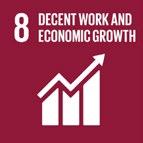

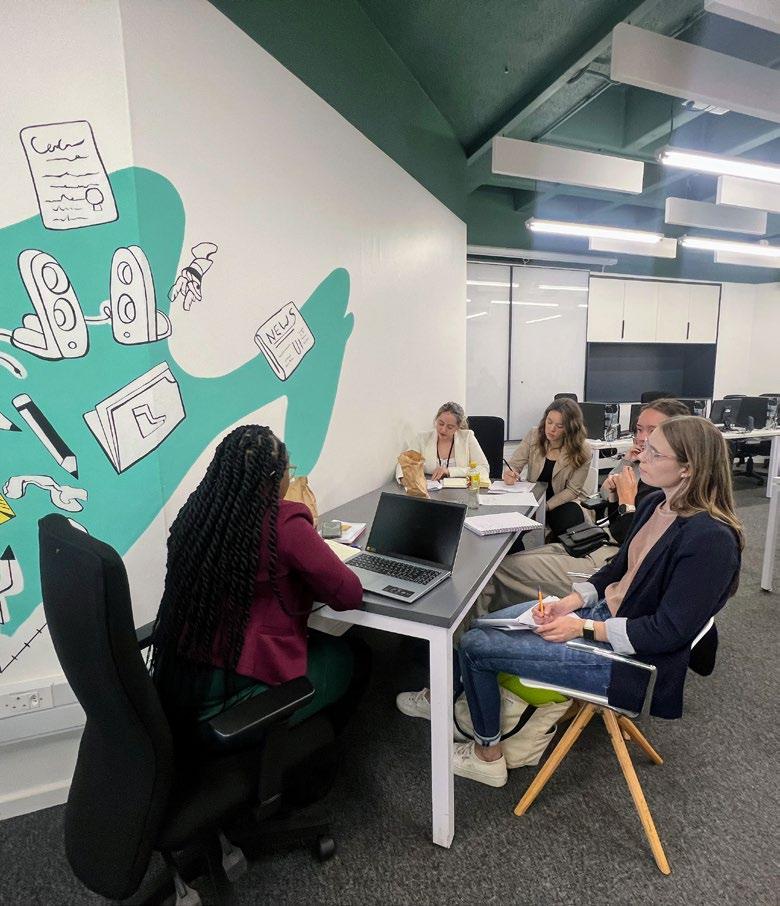
This cluster comprises the Faculties of Health Sciences; Engineering, Built Environment and Information Technology; Natural and Agricultural Sciences; and Veterinary Science.
Cancer is a growing public health crisis in subSaharan Africa, where the rising incidence rate is driven by a combination of infectious diseases, environmental exposures and social inequalities. Globally, cancer is the second-leading cause of death, with nearly 70% of deaths occurring in lowand middle-income countries.
In sub-Saharan Africa, persistent infections such as HIV/ AIDS, human papillomavirus and the hepatitis B virus amplify this burden, underscoring the urgent need for equity-focused solutions.
The Pan African Cancer Research Institute (PACRI) was established at UP in 2019 to address this challenge through integrated health equity. PACRI brings together cutting-edge science, clinical care, public health, cultural expertise, patient advocacy and policy engagement in a collaborative model that accelerates translational research and ensures that community needs shape scientific priorities.
PACRI hosts the Department of Science, Technology and Innovation-NRF SARChI Chair in Precision Oncology and Cancer Prevention; and the South African Medical Research Council’s Precision Oncology Research Unit. It also serves as a global co-investigator for the Cancer Grand Challenges’ Team SAMBAI (which stands for Social, Ancestry, Molecular and Biological Analysis of Inequalities) – this international collaboration funded by Cancer Research UK addresses cancer inequities in Africa through advanced multi-omics, biorepositories and community-engaged research.
PACRI’s innovative research integrates genomics, immunomics, the exposome and social determinants of health to understand the complex factors that drive cancer disparities in African populations. Its work spans prevention, diagnosis, treatment and survivorship through interdisciplinary programmes supported by state-of-the-art facilities.
Supported by UP, the South African Medical Research Council and the NRF, PACRI is driving a paradigm shift towards personalised, proactive, equitable cancer care. Through its commitment to integrated health equity, PACRI is transforming cancer care across Africa, ensuring that science serves all, leaving no community behind.


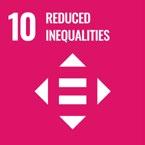

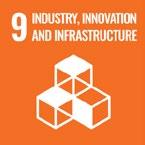

In 2024, the University of Pretoria and Cornell University’s College of Veterinary Medicine received a grant from the US’s National Institutes of Health to establish the Centre for Transformative Infectious Disease Research on Climate, Health and Equity in a Changing Environment (C-CHANGE).
The intersections between climate change, infectious diseases, health and equity are shaping an emerging and complex global challenge. For instance, climate change is accelerating the spread of diseases transmitted by mosquitos and ticks, as well as increasing the risk of zoonotic viruses spilling over from animals to humans. In our globally connected world, the threat of novel pandemics is steadily increasing. As seen with the COVID-19 pandemic, disadvantaged and vulnerable populations are likely to experience disproportionately severe impacts.
C-CHANGE aims to address these challenges through collaborations between faculty and students from both UP and Cornell. It is becoming increasingly relevant to offer new solutions to the impact of climate change on human health; this requires foresight and anticipation coupled with rigorous research that can be rapidly translated into practice.
Within the collaboration, UP has adopted an interdisciplinary approach, with participants drawn from the Faculties of Health Sciences, Veterinary Science, Natural and Agricultural Sciences, Economic and Management Sciences, and the Future Africa Institute. In addition, the centre’s faculty and trainees will partner with local government and rural communities in South Africa and New York State for transdisciplinary initiatives.
The first major project will focus on viral pathogen spillover, and will investigate the effects of climate extremes and land use changes on wildlife stress and increased viral shedding and human interactions that facilitate viral spillover events. A second major project will explore animal and human health, and ecological and genomic data on vectorborne diseases in the context of climate change. Both initiatives will be supported by two transdisciplinary core functions: the ‘Living Evidence and Applied Data Modelling Core’ and the ‘Community Engagement Core’.

These will respectively optimise data management and integration, and facilitate partnerships with vulnerable communities, from research design through to production and the communication of results.
The integrated, transdisciplinary approach will strengthen predictive capability with the establishment of earlywarning systems and evidence-informed prevention, early intervention and the mitigation of emerging global threats.



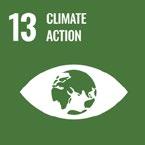
Inter-professional education and collaboration across disciplines are becoming increasingly important around the world, and continue to be strengthened in UP’s School of Health Care Sciences and the Department of Speech-Language Pathology and Audiology. This is coupled with the need for students and graduates to be more attuned to local communities and their contexts.
The Integrated Healthcare Leadership 120 module focuses on preparing students to work in interdisciplinary teams and engaging with communities. In this way, they gain practical experiences and insights, which equip them with the leadership and teamwork skills needed in their careers. The module brings together students from diverse healthcare disciplines – nursing science, human nutrition, occupational therapy, physiotherapy, speech-language pathology and audiology, and radiography – to learn how to work collaboratively. The module is structured to build their knowledge across healthcare systems, professionalism and ethics, interprofessional team principles, community assessment and models of care. The integrated approach enables professional silos to be broken down for enhanced patient outcomes.
A key part of the module is leadership development in a community setting. To achieve this, students are taken on a Community Engagement Tour, where, along with mentors, they are immersed in real-world community healthcare settings. The students visit five community sites where significant healthcare and social challenges are commonly experienced, focusing on addressing the healthcare needs of underserved communities and experiencing first-hand the challenges faced. This immersion enables students to develop critical-thinking skills and translate knowledge from the classroom into practice in real-world situations. They are expected to identify health challenges from the communities visited before working out possible solutions that the communities can undertake to change their environment.
The experience offers students a deeper understanding of healthcare inequalities, and through teamwork, the crucial role of interdisciplinary collaboration to address complex issues in underserved communities is demonstrated.



UP is spearheading digital transformation in higher education through an initiative that’s set to reshape campus management. Over the past two years, the Department of Facilities Management has been modernising operations through strategic partnerships and innovation. At the heart of this transformation is the UP Digital Twin Initiative in collaboration with the Department of Architecture and a handful of consultants.
Through the initiative, UP is developing virtual, real-time models of its physical assets including buildings, electrical grids and green infrastructure. These digital replicas are integrated with the Internet of Things to enable remote monitoring, management and optimisation of campus infrastructure.
Set for pilot launch in mid-2025, an ecosystem is created where the physical campus seamlessly integrates with its digital counterpart, enabling more efficient management of resources and fostering a sustainable learning environment. Also referred to as a Digital Twin, the system’s capabilities are being designed and developed in an agile manner. The Smart Campus initiative integrates key technologies – including geographic information systems, building information modelling and the Internet of Things – and will soon

incorporate artificial intelligence to enhance infrastructure data management, enabling more effective campus planning and development.
The initiative has advanced significantly, and digital replicas for UP’s property portfolio, tree inventory, and water and electrical distribution systems have been established. The water management system, equipped with water meters for leak detection exemplifies how this technology prevents disruptions and wastage, and ensures efficient resource usage. Occupancy for major lecture venues are being tracked to optimise utilisation, while municipal account anomalies are visualised, allowing property managers to improve account accuracy, which contributes to significant financial savings. Additionally, sensors monitor natural assets, alerting the Facilities Management team when trees need watering; technology is also used
to capture tree maintenance concerns, thereby promoting a greener campus environment.
Through this pioneering initiative, UP is establishing itself as a leader in the global education landscape, implementing technologies that create smarter, greener, more responsive campuses.



UP is leading a bold national effort to transform engineering education in South Africa. The Innovative Engineering Curricula (IEC) project, coordinated by UP’s Professor Lelanie Smith and funded by the Royal Academy of Engineering and South Africa’s University Capacity Development Programme, is reimagining how engineers are trained in order to address real-world challenges.
At its core, the IEC project supports a shift from fragmented curricula to more integrated, future-oriented learning that aligns with sustainability goals and the complex realities of engineering practice. The initiative brings together 12 of South Africa’s 16 engineering schools, with formal partnerships including University College London, the Engineering Council of South Africa and leading industry bodies.
Rather than duplicating international models, the IEC team has developed a distinctly South African framework for curriculum integration, one that centres the role of the academic as both designer and facilitator of transformative learning. The project’s collaborative model draws on input from academic staff, accreditation stakeholders, employers and students to ensure relevance and scalability across diverse institutional contexts.
Through the Change Makers programme and the Transformative Teaching in Engineering Education initiative, the project is building a national community of academics equipped to lead curricular transformation from within. These initiatives support staff in developing new teaching identities, engaging with interdisciplinary pedagogies and navigating systemic complexity. More than 200 academics from across South Africa have participated in workshops, peer-learning sessions and reflective practice spaces that challenge traditional norms and encourage innovation. This people-centred investment in educators is central to the project’s success and sustainability, enabling lasting curriculum change by supporting those responsible for delivering it.
Through its distributed leadership model, the IEC project offers more than curriculum reform: it enables systemic change. It builds ecosystems of support and accountability, connects academic development with industry engagement, and empowers institutions to act collectively while adapting locally. The IEC team’s focus on sustainability is not limited to content – it is embedded in the project’s long-term vision of building resilient institutions, inclusive pathways into engineering and a generation of graduates who are better equipped to serve society.
As global calls for sustainable development intensify, South Africa’s IEC project is an inspiring model of how curriculum transformation, if undertaken systemically and collaboratively, can reshape not only what engineers learn, but how they think, work and lead.



The Faculty of Engineering, Built Environment and Information Technology is sponsoring a new event on Pretoria’s youth arts scene, and the first of its kind in South Africa. The ShowUP Arts Festival was held in the University’s iconic Aula theatre in July 2024 in collaboration with the Stage Alive production company.
The aim of the festival was to foster cultural exchange and artistic expression, and provide a platform for emerging artists to display their talents. The format is based on the popular America’s Got Talent TV show, and artists were drawn from 65 of the University’s feeder schools in and around Pretoria, with 250 participants from the schools and from UP’s student community. Three high-profile personalities from the country’s performing arts entertainment sector judged and offered commentary on the performances.
The faculty has a long history of working to connect the arts and engineering science. Although it is home to several highly technical fields, students are encouraged to develop as well-rounded individuals and support the arts. By sponsoring the event, the faculty demonstrates its commitment to promoting the role of technology in the arts and contributes to strengthening broader educational ecosystems and the link between high school and university education.


Researchers from the Faculty of Natural and Agricultural Sciences have been part of a groundbreaking international study to understand how plants found in drylands have adapted to these extreme habitats. The results of this large-scale study, which involved 120 scientists from 27 countries, were published in scientific journal Nature and have significant implications for protecting biodiversity as the planet warms and regions become drier.
Over an eight-year period, teams collected samples from hundreds of selected dryland plots across six continents. UP researchers contributed data sets from South African drylands, with sampling being carried out in the vicinities of Graaff Reinet and Prince Albert in the central Karoo, and around Lichtenburg in the North-West. These sites provided unique data as South Africa’s drylands are particularly rich in plant species compared with many of the other sites included in the study. South Africa is very arid, with 85% of the country defined as drylands.
The study shows that plants in arid zones adopt various survival strategies and that, surprisingly, this diversity increases with aridity levels.
The spatial isolation of plants in more arid zones appears to have reduced competition between species, allowing them to express a greater diversity of forms and functions, with dryland plants displaying double the functional diversity found in wetter zones.
Drylands cover 45% of Earth’s terrestrial area and are home to a third of the global human population. They include sub-humid, semiarid, arid and hyper-arid ecosystems such as the Mediterranean landscape, steppes, savannas and deserts. Interestingly, 90% of current knowledge on the functional diversity of plants concerns only agricultural ecosystems and temperate zones. Knowledge and data on drylands are severely underrepresented, and these important zones are now directly threatened by increasing aridity, grazing pressure and desertification.
Understanding the ecology of our dryland ecosystems is crucial for how we manage and conserve these environments, as much of South Africa’s population lives in and relies on drylands.


With the world population reaching 9.8 billion by 2050, providing affordable, safe, nutritious food for everyone is an enormous challenge. Aquatic foods offer viable and sustainable nutrition solutions, but coastal communities and their associated habitats face a significant threat from climate change. This is compounded by a lack of access to technology and enabling policy environments.
UP’s Department of Consumer and Food Sciences is contracted to work with the Africa-Asia BlueTech Superhighway on the expansion of climate-smart technologies to reduce fish loss and waste. The overarching project, which has a budget of £44.5 million (almost R1 billion), is part of the UK’s Climate and Ocean Adaptation and Transition programme of the Blue Planet Fund. The seven-year initiative is being carried out in two phases, with Phase 1 being implemented from 2023 to 2027 in Nigeria, Kenya, Mozambique, Bangladesh and Tanzania. UP’s work will focus mainly on small fisheries along the coast of Mozambique and seaweed valorisation in Tanzania. According to the Food and Agricultural Organisation, much of the current catch (20 – 50%) is lost to spoilage due to a lack of affordable and accessible post-harvest processing facilities.
The Department of Consumer and Food Sciences will develop a small off-grid-powered modular processing prototype drying unit. The unit will fit inside a shipping container and use hurdle technology and hygienic design for the indirect solar drying of fish. The team will also work on novel drying technologies to produce high-value food products.
The work at UP with regard to seaweed valorisation includes characterising new seaweed species for nutritional value, high-value food ingredients and as biomaterial for packaging. Through the introduction of climate-smart technologies and solutions, inherent value is protected, and new value can be created.



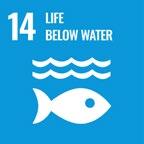

For more information, contact principal investigator Prof MN Emmambux at naushad.emmambux@up.ac.za.
UP’s science centre Sci-Enza launched its first Skills Lab session in July 2024. This innovative programme equips learners in Grades 7 to 12 with fundamental skills for success in STEM (science, technology, engineering and mathematics).
The demand for skilled young people in different fields has never been greater. However, many students enter higher education without a solid foundation in the essential skills that are required for success in STEM disciplines. This gap often leads to challenges in understanding complex concepts, conducting research and applying critical thinking to solve real-world problems. The initiative addresses a crucial gap in early STEM education by providing young learners with the necessary skills and knowledge to thrive in their future academic and research endeavours.
The Sci-Enza Skills Lab focuses on key areas that are vital for success outside the classroom. The programme emphasises critical thinking, problem-solving, research skills, communication, collaboration, time management, technological proficiency, mathematical skills, emotional intelligence, resilience and curiosity.

By nurturing these skills and traits early on, learners are better prepared for their studies and equipped to excel in their future careers.
During the July holiday programme, learners were also introduced to the concept of design thinking, which encourages a human-centred approach to problem-solving, and fosters creativity and innovation with the practical application of theoretical knowledge. Through an immersive experience with hands-on activities and collaborative projects, students learned to empathise with users, define problems from a user perspective, ideate solutions, and prototype and test their ideas.
With the Sci-Enza Skills Lab, the centre is positioned to support STEM education and is committed to shaping the future of young learners. Furthermore, as a University-affiliated science centre, Sci-Enza leverages its expertise, resources and networks to offer academically rigorous, engaging and impactful programmes.


Supported with funding from the Red Meat Industry Services, UP’s Faculty of Veterinary Science is exploring technological advances, particularly with Luminex xMap technology.
Cattle farming is a cornerstone of global agriculture, providing essential resources such as dairy products and meat. However, the loss of unborn calves causes significant losses in animal production, and while this has not been quantified in South Africa, in California in the US, for example, the cost of a lost bovine foetus amounted to about US$ 1 900 per foetus in 2016. These losses not only have an impact on the economic viability of farms, but also raise concerns about herd health.
Several factors can contribute to the loss of the developing calf, including infectious disease, genetic abnormalities, toxins and poor nutrition. Determining the cause of abortion is important for implementing effective preventive measures. Current diagnostic methods, which often involve post-mortem examinations, have significant limitations such as environmental contamination, a high cost and lengthy waiting periods, and have a global success rate of 30 – 40%.
Polymerase chain reaction (PCR) assays that can rapidly detect abortion-causing pathogens such as bacteria and viruses have partly overcome some of the challenges, although those currently in use can test only suspected pathogens individually. Emerging PCR techniques can identify a small number of pathogens simultaneously.
The Faculty of Veterinary Science is looking into technological advances with Luminex xMap technology, offering the possibility to diagnose cattle abortions more quickly and accurately. The cutting-edge technology tackles some major limitations of traditional diagnostic methods as the system can be loaded with up to 500 different pathogens, allowing a ‘multiplex’ set-up that tests all of these at once. In just one test, xMap technology could screen for all known infectious causes of bovine abortion, delivering results quickly and efficiently.
Early laboratory testing has shown promising results, with lab trials successfully detecting known samples of Brucella abortus, Listeria monocytogenes and Varicellovirus bovine alpha1 (previously known as Bovine alphaherpesvirus), all pathogens that can cause cattle abortions. This advancement could be a game-changer, allowing for rapid, large-scale testing that would improve disease management in cattle and help prevent outbreaks by detecting multiple pathogens simultaneously.




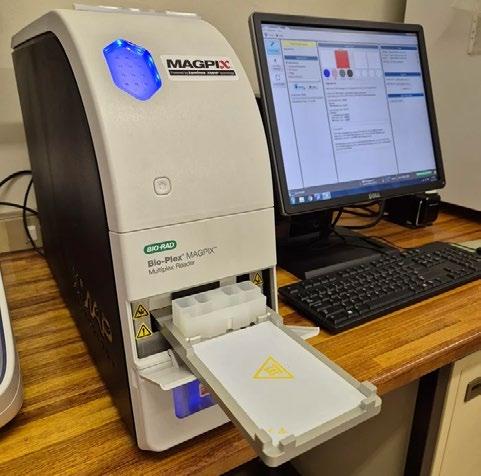
TRANSLATING OUR STRATEGY INTO ACTION
A five-month-old, 125kg orphaned female white rhino calf from The Rhino Orphanage in Limpopo successfully underwent life-saving surgery at UP’s Faculty of Veterinary Science. The Rhino Orphanage is dedicated to the rescue, rehabilitation and conservation of orphaned and injured rhinos in South Africa. It works closely with veterinary professionals and conservationists for the long-term survival of rhino species, particularly the critically endangered white rhino.
The calf had been exhibiting signs of severe abdominal pain for two days and was urgently referred for treatment after refusing to drink from her milk bottle. On arrival, the calf was treated as a surgical emergency, with ultrasound imaging revealing swollen, thickened loops of small intestine, indicating an intestinal obstruction.
An immediate exploratory laparotomy with advanced monitoring was performed by a skilled veterinary surgical team comprising surgeons, specialist nursing staff and anaesthesiologists.
The team identified a colon impaction, a condition commonly seen in horses. The large intestinal obstruction was successfully removed, and the small intestine was decompressed. The calf recovered well from anaesthesia and was soon alert and hungry.
Post-surgery, her recovery, which included intravenous fluids, antibiotics and pain relief, was closely managed by the veterinary team. Within days, the calf showed a dramatic recovery, including returning to her normal feeding schedule. Six days after surgery, she was strong enough to return to The Rhino Orphanage, where she continues to thrive.
This intervention not only saved the life of the young rhino calf, but also represents a significant contribution to the conservation of the critically endangered white rhino species. As the calf matures, she will have the potential to contribute to the survival of her species as a breeding female. Every life saved plays an important role in efforts to protect these majestic creatures. This smoothly coordinated effort demonstrates the vital role of veterinary expertise and collaboration in wildlife conservation.

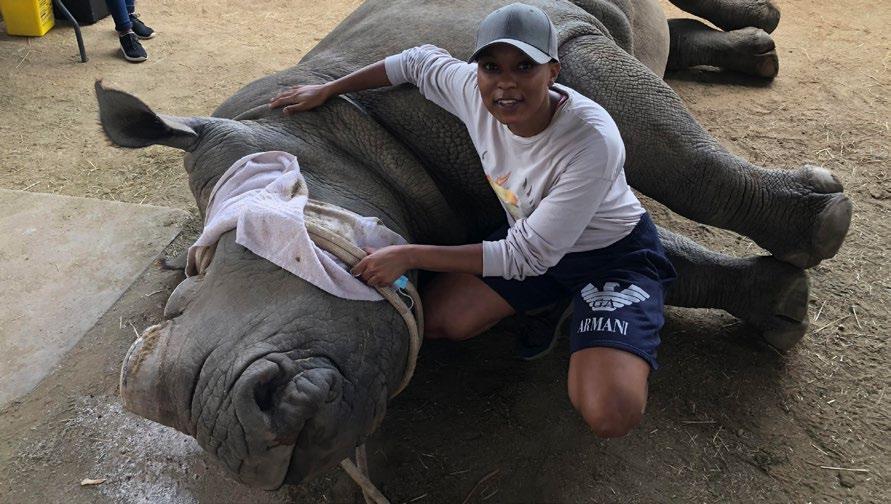
The Faculty of Veterinary Science and Red Meat Industry Service (RMIS) hosted a farmer’s day for communal and emerging farmers in the Bojanala District, North-West. During the event, 176 cattle were identified, aged and vaccinated. This was part of a programme that aims to uplift communal and emerging farmers.
The RMIS provided their mobile processing unit for tagging, ageing and vaccination. The unit, which includes a body crush and neck clamp, tag scanner and electronic scale, is a breakthrough in livestock management as it is designed to provide farmers with essential livestock services on-site. The fully equipped mobile facility supports livestock tagging, branding, dehorning and vaccinating at high standards of biosecurity and animal welfare.
UP’s Production Animal Clinic team – which comprised a veterinarian, an animal health technician and eight students – provided medication and vaccines, including those for lumpy skin disease, supavax for anthrax, botulism and blackleg, and ivermectin for parasitic infections.
The initiative required engagement with the community and their active participation: the community leader mobilised the farmers and organised the community herds, while students on agricultural learnerships within the community helped to herd the cattle.
The multistakeholder collaboration was a resounding success, with the target of 150 cattle being exceeded. Enduring benefits include strengthening relationships between academia, industry and communities; building the capacity of communal and emerging farmers; student immersion in communities to address real-world challenges; improving the health of herds; and rural economic development.
Recording information on the herds enables all stakeholders to enhance biosecurity for market entry, as the animals have been tagged and bio-fenced. As for veterinary herd health, the next step is to further improve the production of the herds and, where necessary, support entry into inaccessible markets.




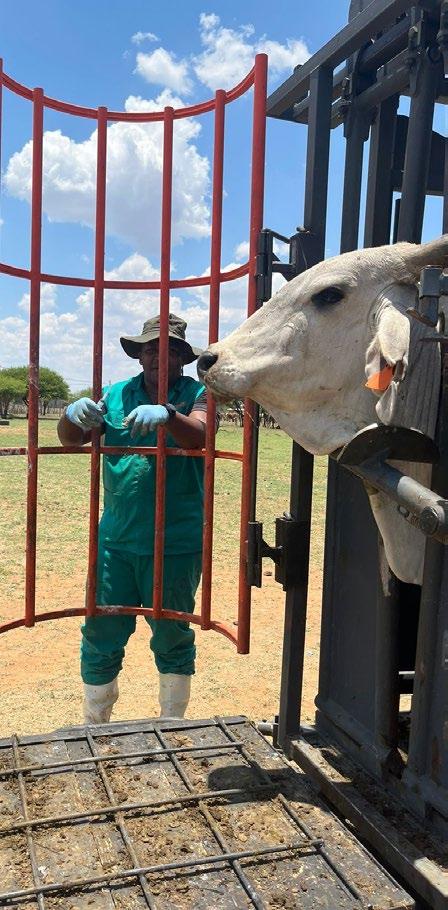
Graduate output (EBIT)
Graduate output (NAS)
Graduate output (Health Sciences) Graduate output (Veterinary Science)
The inclusive societies and capable institutions cluster comprises the Faculties of Education; Humanities; Law; and Theology and Religion.

The University of Pretoria is celebrating five years of fully on line education through its UPOnline offering, which continues to expa nd access by allowing students to study from anywhere in the world. What began in 2020 with two fully online postgraduate diplomas now includes a growing offering of online programmes, including the Higher Certificate in Sports Science, its first fully online unde rgraduate qualification. The first graduates cross the stage in September 2 025.
As the first programmes to launch, the Postgraduate Diploma in Public Health and Postgraduate Diploma in Public Management, hosted by the Faculty of Health Sciences, and the Faculty of Economic and Management Sciences respectively, offered working individual s flexibility to study from anywhere. Over the past decade, thousa nds of students have enrolled, obtaining qualifications while balancing work and family life. The impact has been significant: in 2024, a rec ord 678 students graduated with the Postgraduate Diploma in Public Health and 178 graduated with the Postgraduate Diploma in Public Managemen t. To date, more than 10 000 students have enrolled in UPOnline programmes, with some enrolling from countries as far as China, Ethiopia, Uganda and Portugal.
The offerings are managed through UP’s Comprehensive Online Education Services (COES) and driven by the belief that quality education should be accessible to everyone, regardless of geographical location or personal circumstances. In line with UP’s strategic intent to broaden student access and amplify societal impact, the COES team focuses on innovation and leveraging technology for quality education and improving learning experiences.
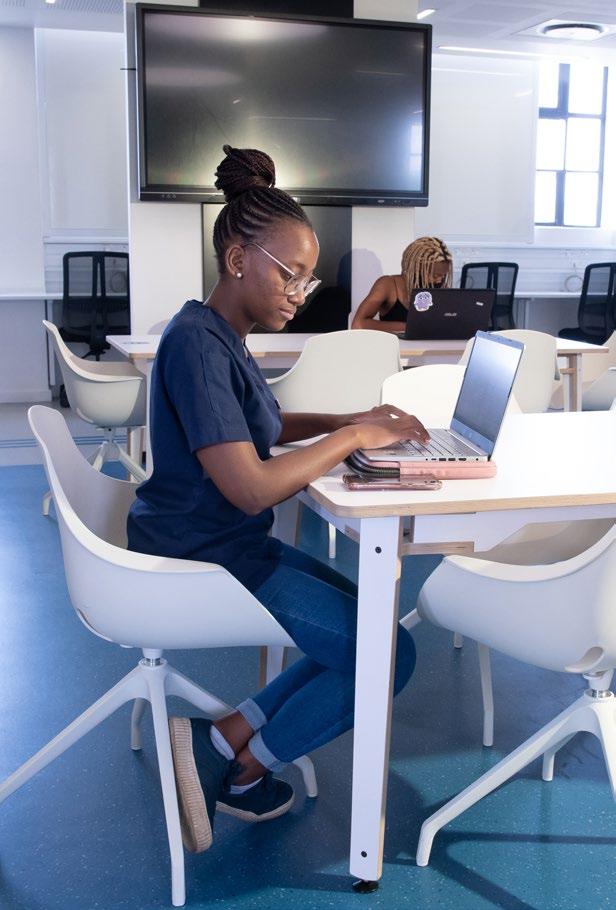
A team of learning designers and multimedia experts ensure that UPOnline programmes go beyond content delivery, creating interactive, visually engaging, impactful learning experiences. The learning designers support curriculum design and the development of programmes, collaborating with programme coordinators and subject matter experts in faculties to create quality-assured programmes that are not only educational, but also user-friendly and visually stimulating. Virtual spaces where students can engage informally help to address the challenge of feeling isolated without face-to-face-interactions. Championing accessibility also includes creating inclusive online learning spaces where differently abled students can participate in their studies.
In an example of innovation and leveraging technology, the service is testing the use of virtual reality to create a virtual environment for the research protocol module of the Postgraduate Diploma in Public Health. The virtual reality platform makes it easy to communicate, collaborate and create in 3D environments directly from the web browser. Students can experience situations much like those faced in the workplace. Other innovations include simplifying the admission process, transforming student support through the programmes, and identifying and offering targeted support to at-risk students.
The impact of the programmes extends beyond the individual. Since its launch in 2020, the Postgraduate Diploma in Public Management has been steadily shaping the future of public sector professionals. More than just theory, the programme incorporates the use of digital and e-governance as well as citizen engagement in all modules, so that students and graduates improve public service-delivery in the workplace.



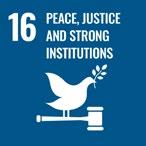
An innovative international collaborative study led by UP’s Professor Linda Theron of the Department of Educational Psychology is examining the network of risk factors and resilience resources among African youth not in employment, education or training (NEET). The study is in collaboration with peers from the South African Medical Research Council, the University of Ibadan in Nigeria, the University of Leicester and University of Nottingham in the UK, and Dalhousie University in Canada. The research is funded through a Wellcome Discovery Grant.
Large numbers of young people across the continent are battling mental health issues such as depression. Stressors such as poverty make them even more vulnerable to mental illness. Across Africa, one in five young people is NEET, while in South Africa and Nigeria, at least one in three youths is NEET. Such high proportions make African youth disproportionately vulnerable to depression.
The complex study requires the measurement of multisystemic factors simultaneously. To do this, the researchers are pioneering a methodology that spans psychological, physiological, biological, structural and physical ecology resources.
This differs from most research in the field, which tends to focus on one or two of the resource categories, without considering how factors across systems combine to support youth well-being.
The 66-month study comprises two phases. Phase 1 is following 1 600 young people between 18 and 24 years old who are based in stressed communities in Gauteng and Nigeria’s Niger Delta. As part of the baseline assessment, teams of researchers and nurses have visited participants at home to profile their physical living environment, install temperature loggers (to measure indoor thermal conditions), conduct a health assessment, and interview participants about psycho-social, economic, technological, and cultural risks and resources. The baseline assessment will be reiterated three more times, with each iteration being six months apart.
Phase 2 will focus on the 500 young adults who reported the highest risks and lowest depression versus the highest risks and highest depression. This phase will include a more granular study of the factors that support resilience to depression, including anthropometric indicators such as stress hormone levels, lung capacity and physical well-being; environmental factors like air quality, noise levels and temperature; and psycho-social factors like political, social and cultural contexts.
The study is entirely Africa-led, and by understanding combinations of resources that offset risk factors, precise, pre-emptive interventions can be tailored to meet the needs of African youth who are NEET.
For more information about the study, visit the study’s website: www.resilientyouth.net




Located in the School of Arts, UP’s Ovuwa cultural ensemble is open to students from all faculties. The group featured at the South African Traditional Music Achievements (SATMA) Awards, winning the award for Best Traditional Group/Artist of an Institution of Higher Learning. Launched in 2006, the awards celebrate South Africa’s array of musical cultures, and aim to bring all races and ethnicities together. The organisation champions unity and challenges all forms of division.
UP’s Ovuwa performs a repertoire of traditional African songs and dances, showcasing the diversity of South African cultures. Its performances also include the musical traditions of Zimbabwe, Uganda, Rwanda and other African countries. Accompanied by indigenous percussive instruments, the ensemble presents these artforms with authenticity and respect. They perform in every official South African language, including Khoisan, making Ovuwa a truly unique group in the higher education space.
Starting with only eight members in 2012, the ensemble has grown significantly over the years, both in size and reputation. It is recognised across the country, having performed for high-profile
entities such as the South African Presidency and the BRICS Intelligent Telescope and Data Network. Ovuwa’s core mission is to celebrate and preserve South African heritage and spread a message of ‘unity in diversity’ to counteract the challenges of division, tribalism and xenophobia. Recruitment is based not only on musical talent, but also on cultural diversity.
The SATMA Award recognises Ovuwa’s dedication to preserving and promoting African indigenous musical art and is evidence of UP’s commitment to inclusivity and transformation.
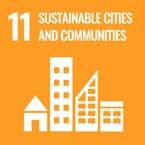
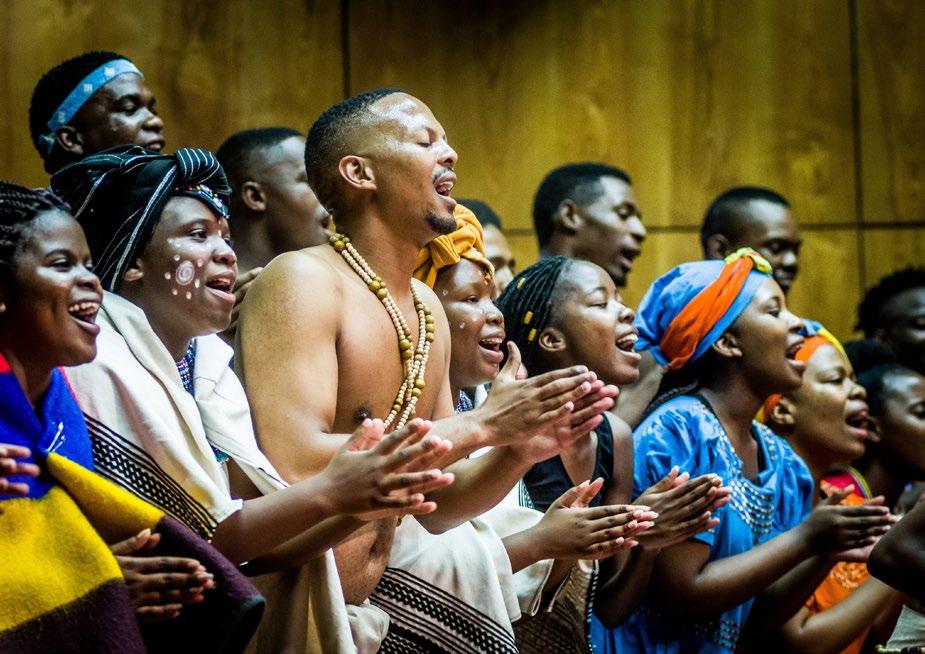
Established in 1990, the Clinic for High Risk Babies (CHRB) is run by staff of UP’s Department of Speech-Language Pathology and Audiology. Under the team’s supervision, final-year speech-language therapy students provide targeted early communication intervention for young children with communication difficulties and their caregivers. Final-year audiology students provide hearing-related assistance.
In 2024, the clinic saw 18 children during weekly sessions. Clients have developmental delays, cleft lips or palates, feeding difficulties or autism. In the past, children born pre-term or with Down syndrome have also been helped.
Communication is central to our quality of life, helping us to connect to the world. The clinic helps young children communicate better by supporting their families or caregivers to walk the path with them. The CHRB takes a caregiver-centred approach, through which
strategies are shared with the adults taking care of a child. The caregiver then puts the strategies learnt in the clinic into practice at home. They learn that communication comes in many forms, and that children with communication difficulties are still able to communicate in their own ways.
As well as providing a valuable service to the community, the CHRB creates a platform for student training and community outreach. Fourth-year students working under supervision can apply what they have learnt in theoretical modules, experience working in multidisciplinary teams and nurture the human side of caring.
The CHRB is a clear example of the impact on students and recipients of care. It makes a real difference to young children and their families, who find their experiences with the team indispensable.


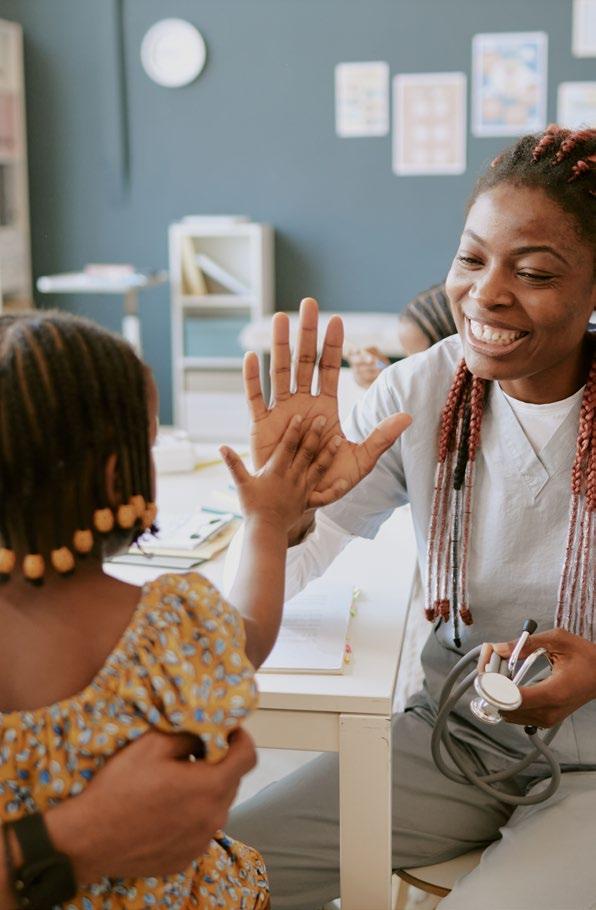
The Centre for Human Rights in UP’s Faculty of Law continues to co-host the annual National Schools Moot Court competition with the Department of Basic Education, Department of Justice and South African Human Rights Commission. Now in its 14th instalment, the competition is instrumental in introducing students to a possible legal career as they compete in district, regional and provincial rounds to qualify for the national oral rounds.
The contest trains competitors in the research, writing and oral communication skills needed to present their arguments in front of judges in a realworld courtroom setting. Students are provided with a resource bundle that includes essay writing and oral pleading guidelines to help them prepare arguments for hypothetical cases.
In September 2024, the University’s Hatfield campus hosted the top 36 schools – four from each province – for the national rounds of the competition. Over two days, the schools competed to determine the top four teams that would advance to the final rounds, held at the Constitutional Court in Johannesburg. The top four comprised two high-
quintile and two low-quintile schools. Finalists were guided by a diverse team of legal experts as they prepared arguments to be presented before a full bench of Constitutional Court judges. Judges for the national rounds were drawn from the Gauteng, Western Cape and Mpumalanga Divisions of the High Court.
With the Deputy Ministers of Basic Education, and Justice and Constitutional Development involved in events, the National Schools Moot competition continues to be a high-profile event on high school calendars. It’s also a strong reflection of the Law Faculty’s commitment to strengthening the legal ecosystem and the pipeline of future talent.



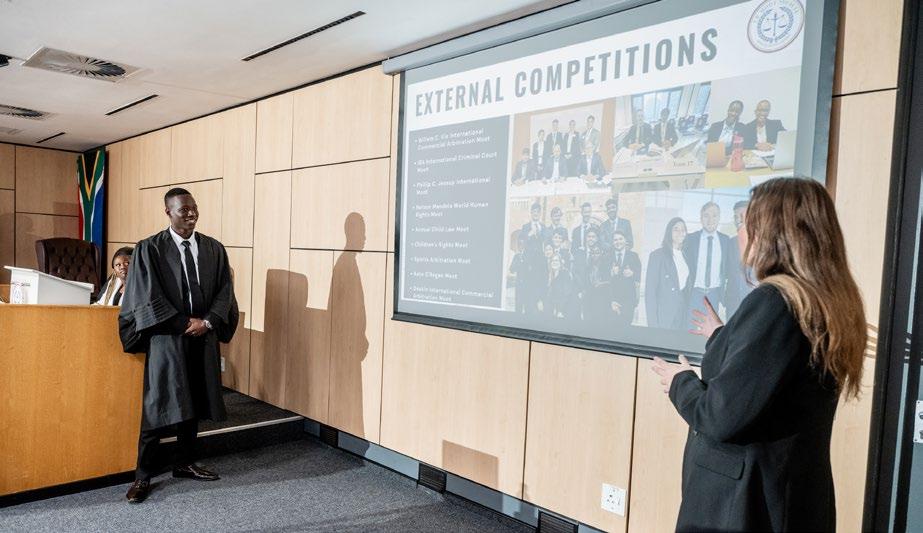
UP’s Department of Mercantile Law in the Faculty of Law has established itself as a strategic partner in teaching, research and community engagement that bridges the gap between business and the law. Hosting South Africa’s only master’s degree in Consumer Protection, the department works to advance social justice and discover answers to societal questions.
In October 2024, the department established a formal collaboration with the Consumer Goods and Services Ombud (CGSO) to mutually strengthen their respective responsibilities, which include promoting consumer education and raising public awareness on consumer protection. The memorandum of understanding between UP and the CGSO promotes interactions between the academy and industry practitioners, and outlines several areas of cooperation. These include consumer education and community outreach, guest lectures, sharing best practices, establishing a dedicated consumer protection office at the UP Law Clinic, conducting research, and jointly hosting conferences and workshops.
The collaboration is a significant milestone towards bringing academic knowledge and practical experience in consumer protection together. The department’s research, teaching and learning, and community engagement will be greatly enhanced as a result of this collaboration. Students will be provided with real-world experiences and skills to address contemporary issues that face consumers. This aligns with the faculty’s goal of being humancentred and ensuring that the law is taught in a way that endeavours to address national, regional and global socio-economic challenges. Similarly, the CGSO can tap into UP’s resources, expertise and networks as it responds to the complex, evolving challenges of consumer protection.




The 2024 African Mining Legislation Atlas (AMLA) workshop was hosted by UP’s Faculty of Law in partnership with the City of Tshwane. The gathering also commemorated the 10th anniversary of AMLA, and its decade-long contribution to enabling African states through accessible and uniform mining legislation that promotes sustainable practices.
The event brought together academics, policymakers, legal professionals and industry stakeholders to discuss advances and challenges in Africa’s mining legislation landscape. Hosting the dialogue demonstrates the University’s role as a strategic convenor and affirms the faculty’s dedication to progressive legal research, governance and resource management.
The African mining industry plays a vital role in economic development while having significant environmental responsibilities. It faces critical questions and challenges, such as who the beneficiaries of resource extraction are; the development of effective governance frameworks that address power imbalances and issues such as racial capitalism; illicit flows of capital; and mining’s impact on sustainable, inclusive and just social, economic and environmental development.

Guided by global experts, the discussions included a critical analysis of mining governance, the foundations of mining operations and legislation, mining regulations, and the importance of openness, equitable resource sharing and governance improvements in Africa. The need for multidisciplinary and collaborative approaches was emphasised, including their role in establishing legal agreements and international collaborations that promote effective governance and sustainable practices. As part of the event, participants undertook experiential tours to Sibanye Stillwater’s Driefontein Mine, the Cullinan diamond mine and various Tshwane tourist attractions.
The workshop advanced the debate over governance and regulations for the mining industry, and built networks that are dedicated to sustainable, equitable development. By bringing together stakeholders from across government, academia, industry and multilateral organisations, the event demonstrated the power of collaboration to address gaps in mining legislation and inspired tangible solutions for Africa’s mining sector.



In July 2024, UP’s Faculty of Theology and Religion in partnership with its Centre for Faith and Community hosted an eco-theology retreat. Attendees included theology students, the faculty’s dean and several lecturers; students from the Tshwane University of Technology and the University of South Africa; as well as two members from the Leadership for Conservation in Africa group.
The participants co-existed as a community, immersing themselves in nature through bush walks and game drives with reflective conversations to illustrate practical applications of biblical teachings. A striking example of this immersion was a morning devotion on a mountaintop, which enabled a deeper connection with nature. Connecting theology with ecology fostered a holistic approach to faith, emphasising the responsibility to care for creation as stewards.
During the week, participants took on communal living responsibilities such as cleaning, preparing meals and leading devotions. These activities were also used for reflection on sustainability-related issues, from performing acts of service to working towards food security.
Participants experienced profound transformations in their understanding of eco-theology. Intrinsic connections between theology and ecology emerged, with a deepened appreciation of nature and creation. Perspectives shifted from viewing nature as a mere resource to appreciating its inherent value and role in creation. This reflects the power of the faculty’s approach to creating meaning by transcending conventional human thinking. Starting with the individual, the retreat provided a transformative journey of reconciling theology with environmental stewardship, reinforcing the interconnectedness of faith and nature.



During the year, UP’s Faculty of Theology and Religion launched Iziko, a formation programme for students considering careers in ministry and missions, outreach and activism after graduation. These are key vehicles through which they can transform their communities.
The term ‘iziko’ comes from isiXhosa and roughly translates as ‘hearth’. The hearth is traditionally and symbolically the social centre of a home and is associated with warmth, kinship and the spirit of the ancestors. As such, an ‘iziko’ is the place to gather, nourish body and soul, and share stories, with knowledge being passed from one generation to the next.
The first cohort of 20 young adults experienced mentorship and participated in reflective sessions as part of their growth and development. This included the aforementioned eco-theology retreat in Marakele National Park, north of Pretoria.
In addition to reflective sessions, the programme combines academic studies with community involvement, real-world ministry experience and spiritual development. This is particularly important in a multifaceted, multicultural society with different histories, worldviews and spiritual concerns. Experiential learning and community engagement help participants to connect with the experiences of individuals and societies as these are often intertwined with the fields of religion and theology. Community-based projects and activities offer a personal look at how religious practices and beliefs affect people’s lives and strengthen their understanding of the social aspects of theology.
A key aspect of Iziko is the emphasis on interdisciplinary methods and interactions with other disciplines like psychology, sociology and environmental studies. Successful community engagement and social transformation requires an inclusive, integrated approach, which helps to make sense of complexity and address the challenges that communities experience. Across the raft of societal constituencies, communities face social injustice and environmental degradation, issues that those in ministry, outreach and activism can help people navigate.
The programme is crucial to producing theologians who are not simply intellectually rigorous but who also possess caring hearts and servant leadership traits. As role models
and prominent members of society, this new generation of theologians must be able to cultivate agency within communities and mobilise diverse stakeholders for enduring transformation and a fairer, more balanced society. As the initiative evolves, it is anticipated that it will become a cornerstone of the faculty’s scholarship.




Once an unofficial rubbish dump and a hotspot for illegal activity, Moja Gabedi at 384 Festival Street in Hatfield is now a thriving community engagement hub. What was once an eyesore is now a lush urban garden, a centre for student learning and a safe, green haven for the local community.
Led by the Unit for Community Engagement in UP’s Department for Education Innovation, rehabilitation of Moja Gabedi began in 2019. Through clean-up operations, 3 000 tons of waste were replaced by 3 000 tons of topsoil and 200 tons of compost. Homeless people who lived on the site were relocated to a nearby shelter with better support structures. Trees were planted, gardens cultivated and temporary structures erected to serve as therapy centres and community meeting spaces.
The project grew over five years, attracting students and community members alike. In 2024 alone, 183 students from various disciplines and faculties contributed to Moja Gabedi. Their work ranged from food production research and environmental rehabilitation to occupational therapy sessions for vulnerable community members.
The Mastercard Foundation Scholars Programme has also played an important role in the Moja Gabedi renewal. Students use the space for entrepreneurial projects that, in turn, provide financial support to Moja Gabedi.
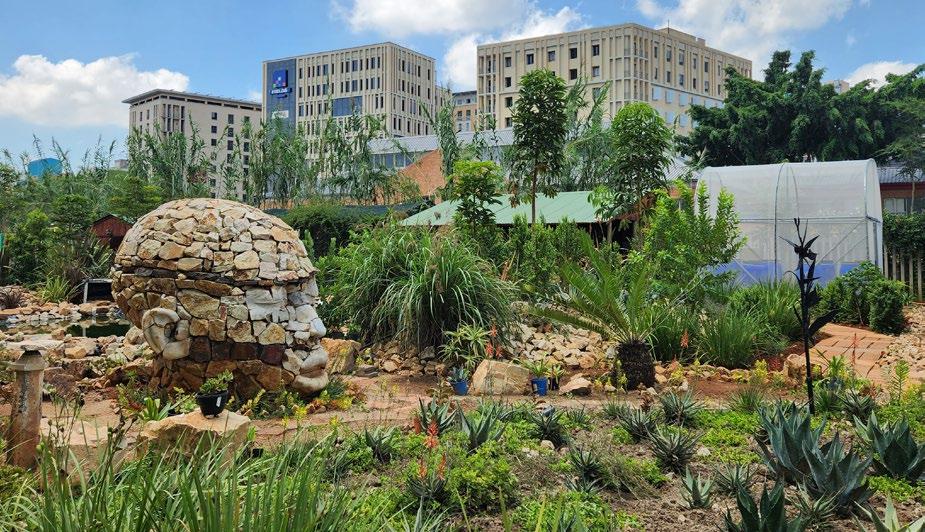
The transformation of Moja Gabedi extends beyond its physical landscape. The project has become a symbol of urban regeneration, drawing in more than 622 community members in 2024. Community members now have access to fresh produce, students have a unique hands-on learning environment, and the area has seen a significant reduction in crime.
Building on its successes, Moja Gabedi will continue to evolve and enhance its societal contributions. Plans are in place to develop the site for educational tours, and establish workshops and small businesses. The initiative is a clear example of how collaboration between the University and local community can transform urban decay into vibrant spaces for meaningful engagement and learning.




Graduate output (Education) Graduate
(Law)
Graduate output (Humanities) Graduate
(Theology and Religion)
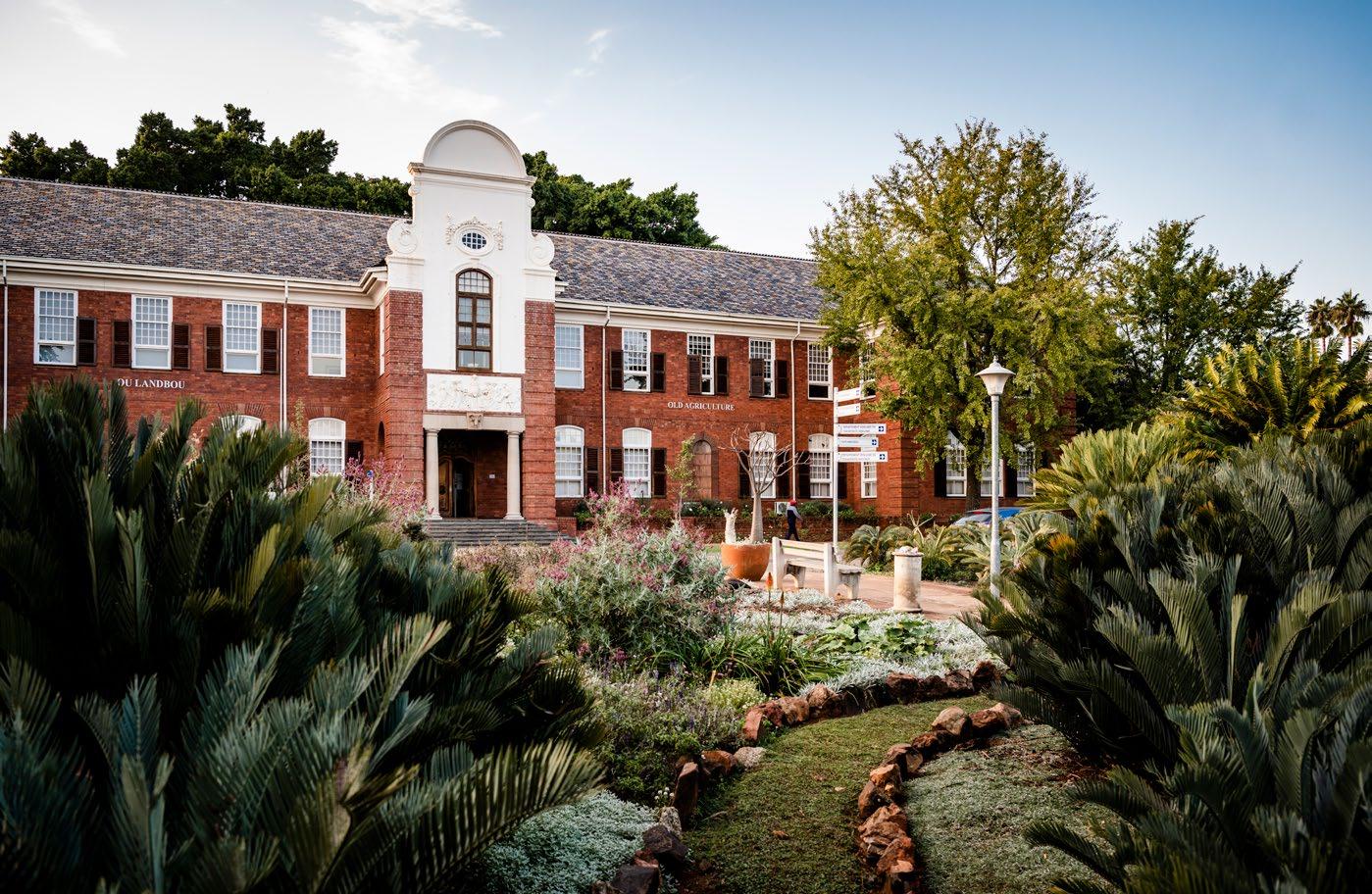


In this report, our primary focus is on how UP takes a holistic, integrated approach to sustainable development. At the same time, we have demonstrated broad coverage of the SDGs in our work towards achieving operational sustainability and in driving sustainable development through our core functions. Our broad coverage is validated by the research outputs per SDG over time, as presented in the following figures.
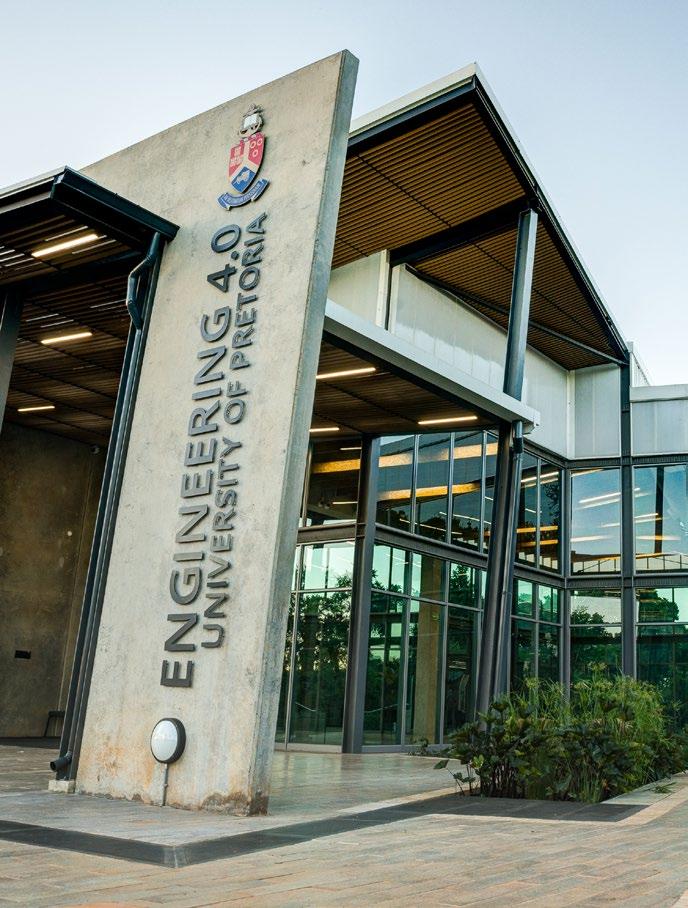

Beyond comprehensive coverage, our research productivity across the SDGs has been stable. UP will continue working towards increasing the relevance of its research so that its impact is felt in the lives of people in South Africa, Africa and the world.

The ways in which we measure success and impact, and the basket of metrics we measure ourselves against in assessing our societal impact have significant limitations. At best, indicators such as research outputs and productivity, the quality of the journals we publish in, and the number of citations we register describe our impact within a closed academic ecosystem. In this context, they should be a means to an end, not an end in themselves. In isolation, they are weak surrogates for the impact we should be demonstrating at macro-societal levels, such as addressing poverty and inequality, and those at micro-societal levels, where we enhance the lives of people and the communities they live in.
Similarly, while the various ranking systems have imperfections, they do provide an assessment of progress over time. In this context, our performance in the Times Higher Education Impact Rankings has been consistently high from an external viewpoint as we continue our sustainability journey.
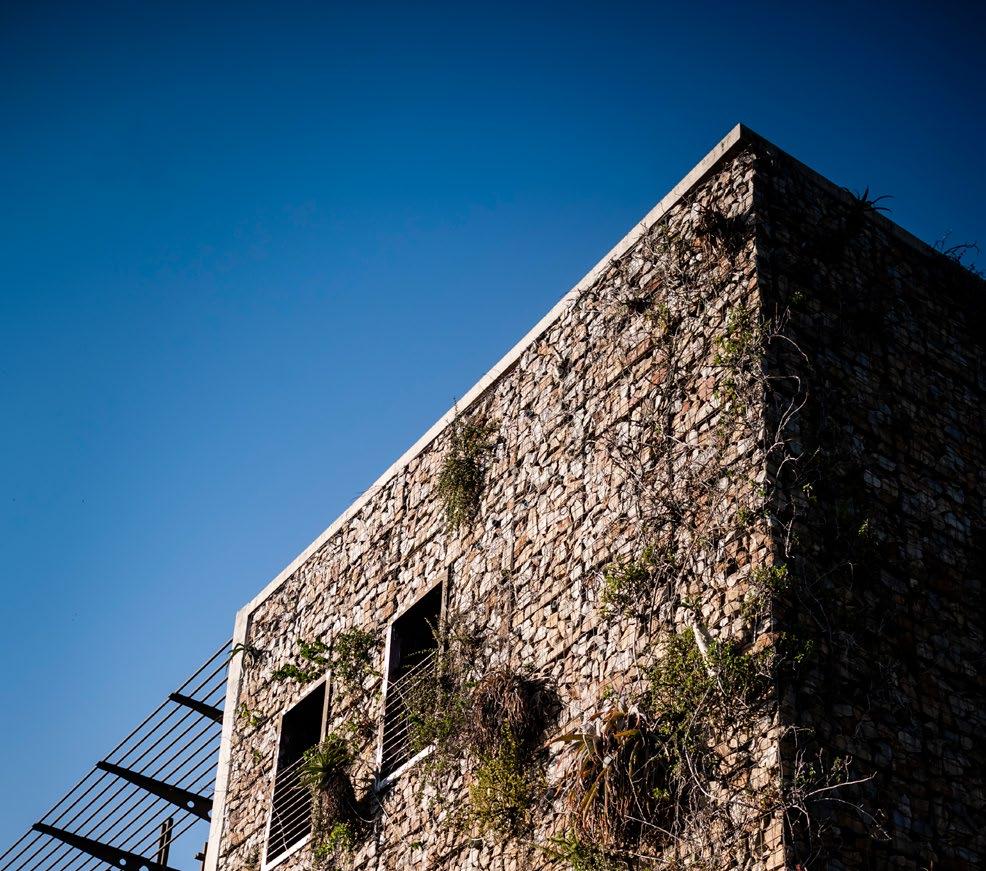
In the 2025 Impact Rankings, UP ranked in the top 100 for seven SDGs.
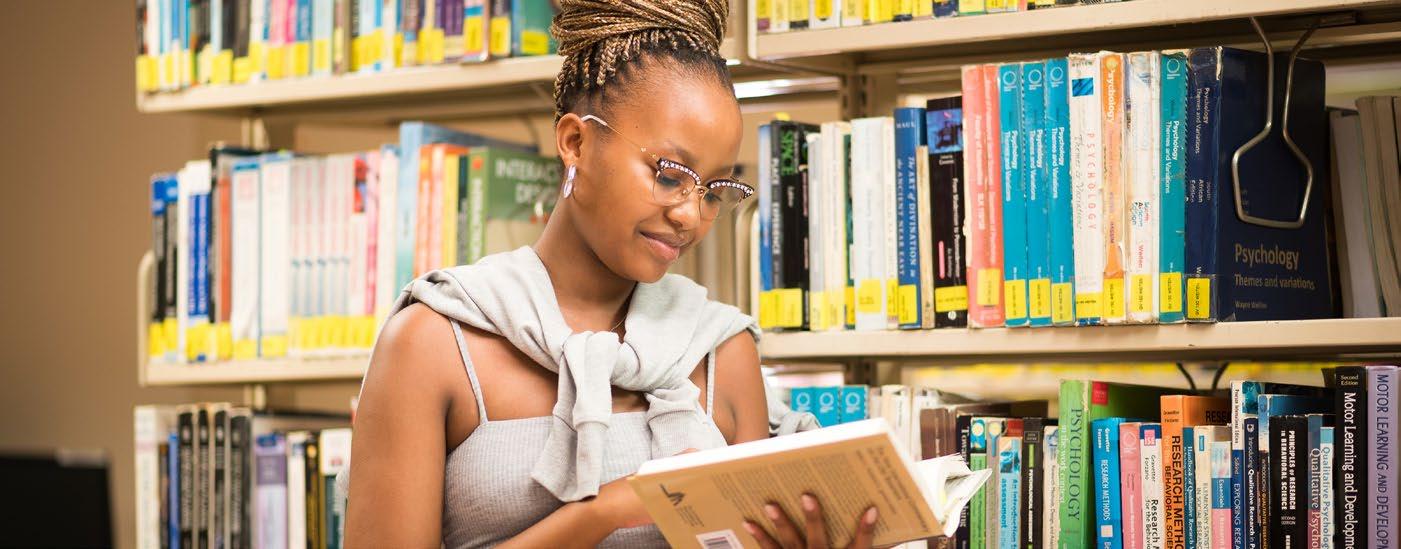
• Chicksen, B., Cole, M., Broadhurst, J., Meyer, H., Hoffman, A. & Viljoen, D. (2018): ‘Embedding the Sustainable Development Goals into Business Strategy and Action’, MtM & MilA Working Paper 1, University of Cape Town. Cape Town.
• Goleman, D., Boyatzis, R. & McKee, A. (2002); The New Leaders: Transforming the Art of Leadership into Science and Results. Harvard Business School Press.
• Goleman, D., Boyatzis, R. & McKee, A. (2013); Primal Leadership: Unleashing the Power of Emotional Intelligence. Harvard Business School Publishing.
• MacDonald, I., Burke, C. & Stewart, K. (2018). Systems Leadership: Creating Positive Organisations. (2nd ed.). Routledge.
• McGregor, D. (2006). The Human Side of Enterprise. (Annotated edition.). McGraw-Hill.
• Reason, J. T. (1997). Managing the Risk of Organizational Accidents. 1st Edition. Ashgate Publishing.
Sustainable Development Report University of Pretoria 2024
The UP 2024 Sustainable Development Report reflects the work, talents and dedication of the University’s academics, professional services, administrative staff and students who make up the UP community. This report would not have been possible in the absence of their efforts and demonstrated excellence. We acknowledge the UP Executive Team for its commitment to sustainable development and for embedding it into the University’s strategy and culture. We are also grateful for the support provided in preparing the report.
University of Pretoria Lynnwood Rd, Hatfield, Pretoria, South Africa
Private Bag X20, Hatfield, 0028, South Africa
Tel +27 (0)12 420 3111
Fax +27 (0)12 420 4555
Brian Chicksen, Executive Office, University of Pretoria
CONTACT: brian.chicksen@up.ac.za
James Mahlokwane, Department of Institutional Advancement, University of Pretoria
CONTACT: james.mahlokwane@up.ac.za
Design and layout: Janine Smit Editorial Services
CONTACT: janine@jses.co.za
Sustainable Development Report University of Pretoria 2024

